Are you thinking about going on a safari in East Africa? Maybe you already have your East African safari booked and now you have a million questions about what to pack, how much money you will need, what the currency is, whether will there be wifi, and lots more.
Keep reading below where I will answer all of those frequently asked safari questions and more. If you still have questions at the end, just leave a comment and I will answer it for you. Let’s get started…
Below is a list of questions that will be answered, split into what to ask pre-booking and post-booking a safari.
Safari preparation questions:
- When is the best time to go on a safari?
- Can I go on safari during the rainy season?
- How much does a safari in East Africa cost?
- Where is the best place to go on safari in East Africa?
- How long should I travel for?
- How do I choose an African Safari operator?
- What are the pros and cons of joining a group safari?
- What does a ‘typical safari itinerary’ look like?
- What does a typical day on safari look like?
- How do I budget for an African Safari?
- How far in advance do I need to book a safari?
- How important are safari guides?
Questions for after you have booked your safari:
- What type of vehicle will we use for the safari?
- What does a domestic flight airplane look like, is it safe?
- What are the luggage restrictions?
- What should I pack?
- What will the food be like?
- I am a vegetarian/vegan/have food allergies, will they be able to cater to me?
- Are there any medical precautions to take?
- How much money will I need?
- How much should I tip?
- Will there be Wifi?
- What is the difference between a lodge, a tented camp, and camping?
- Do I need to know any of the local languages?
- What do I need to know about the culture?
- What are the toilet facilities like while on safari?
Safari Preparation Questions
When is the best time to go on a safari?
For East Africa, Tanzania, Uganda, and Kenya the commonly known ‘best’ time to go on safari is in the dry season which is usually from July – Sep/Oct. This is also the time that you might be able to catch the Wildebeest crossing the Mara River. You know, that famous Attenborough scene when you are crossing your fingers hoping that the wildebeest and zebra make it across the river without getting eaten by the crocodile or lions waiting for them on the other side.
However, this time of the year is also the busiest time and you will experience crowding, especially around the Mara River, in particular in July and August.
I recommend coming around September/October time as it should still be dry, you should (there is never a guarantee with nature) still be able to see some migration crossings, and it’s much less crowded.
Can I go on safari during the rainy season?
Yes, you can. Going on safari during the rainy season means that there will be fewer tourists but of course, more chance of rain.
The rain can affect road conditions and mean that some places are muddy or inaccessible. However, it also means that the grass is greener, and animals are healthier as there is more food and water available and fewer crowds around.
If you have been on safari a few times already then it might be worth considering going on safari in green season the next time. This gives you a new perspective on safari and enables you to see the National park while it is green and lush. It’s also cheaper during the green season.
For your first-time safari, I would stick to the dry season which will give you more chances to see all the animals and not be disappointed.
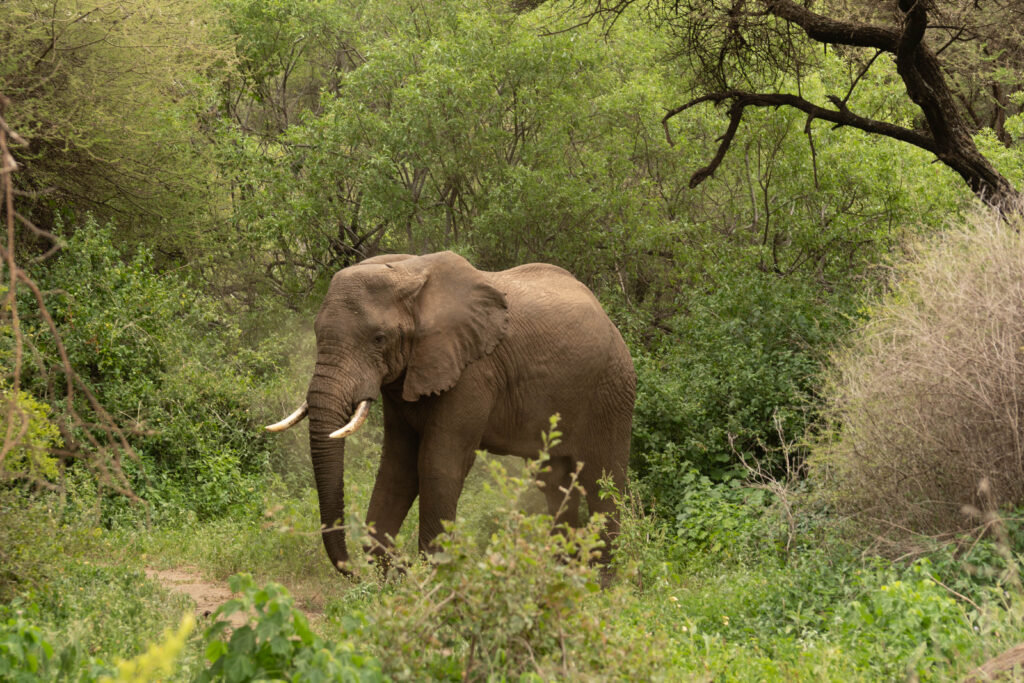
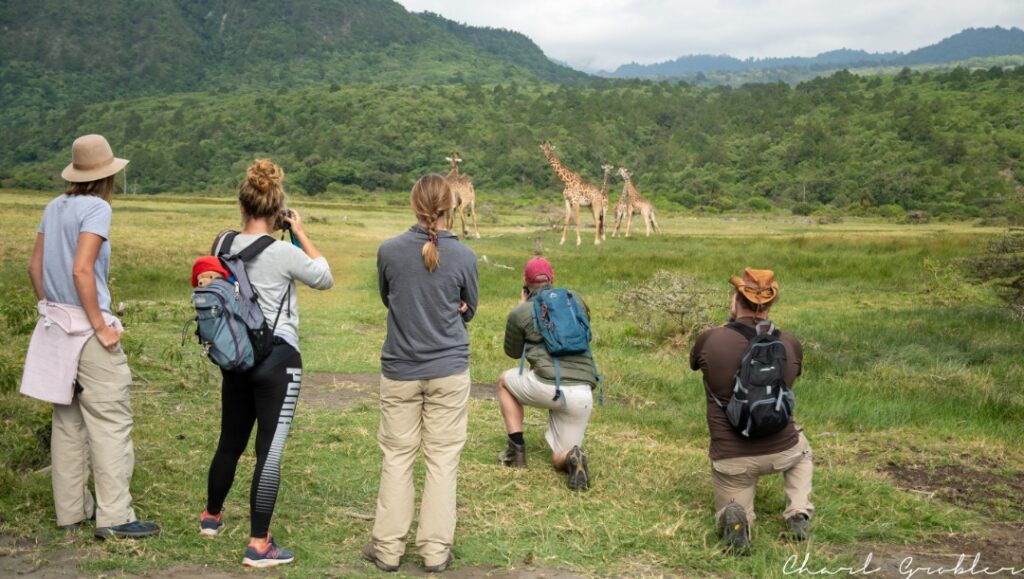
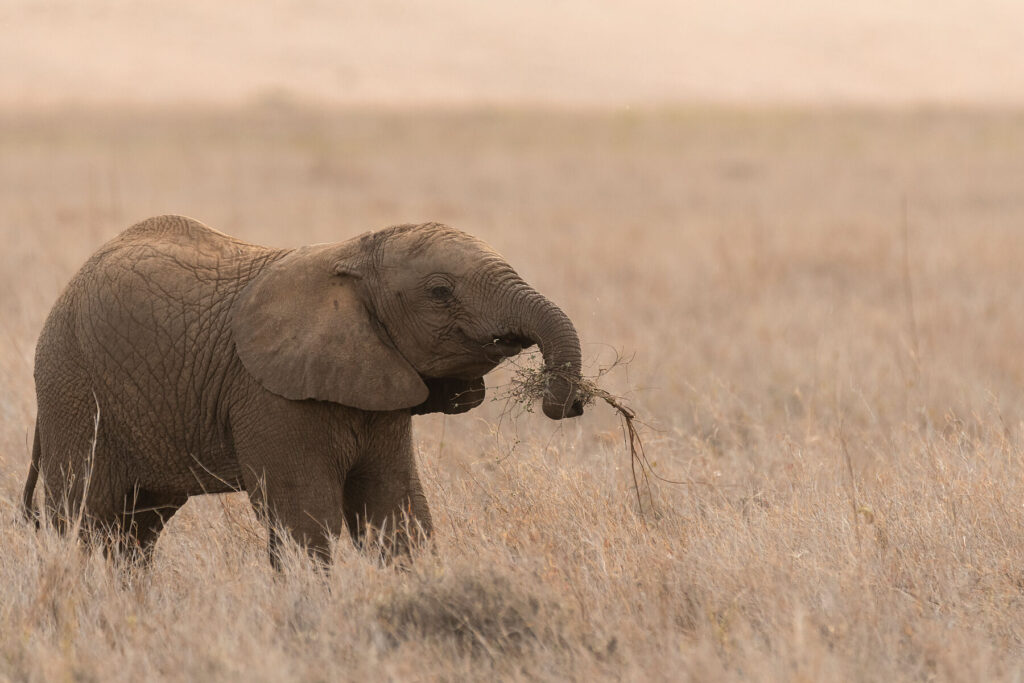
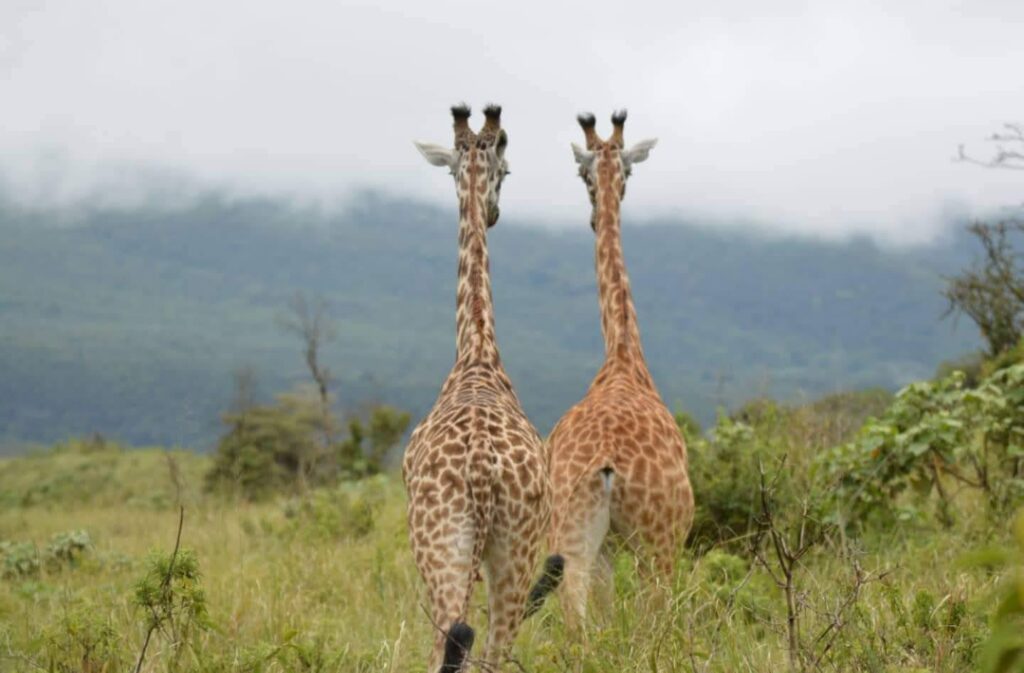
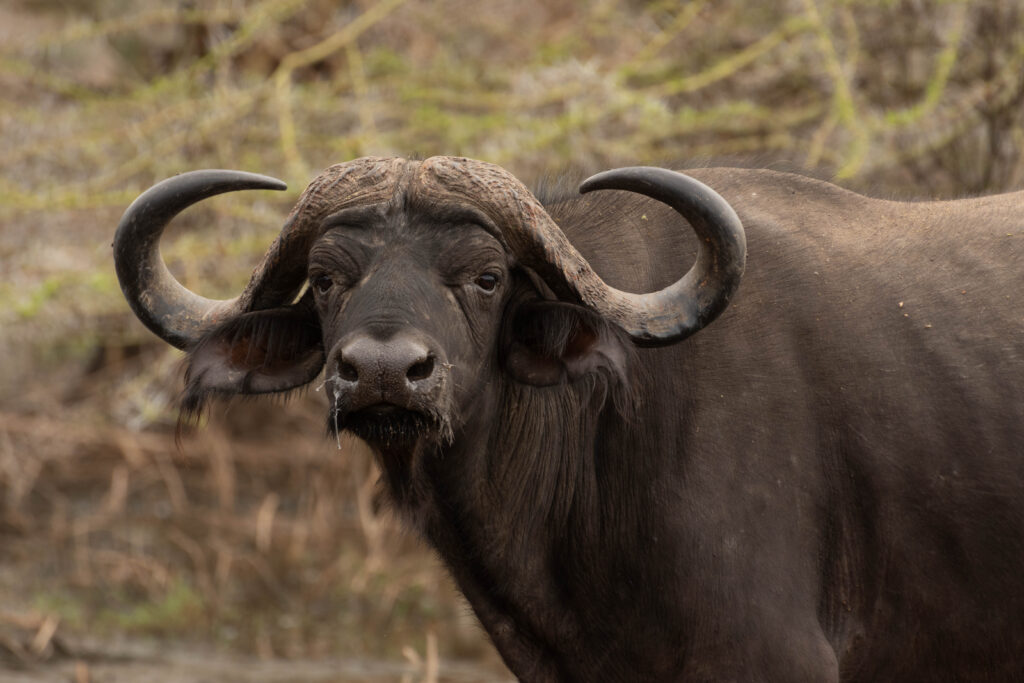
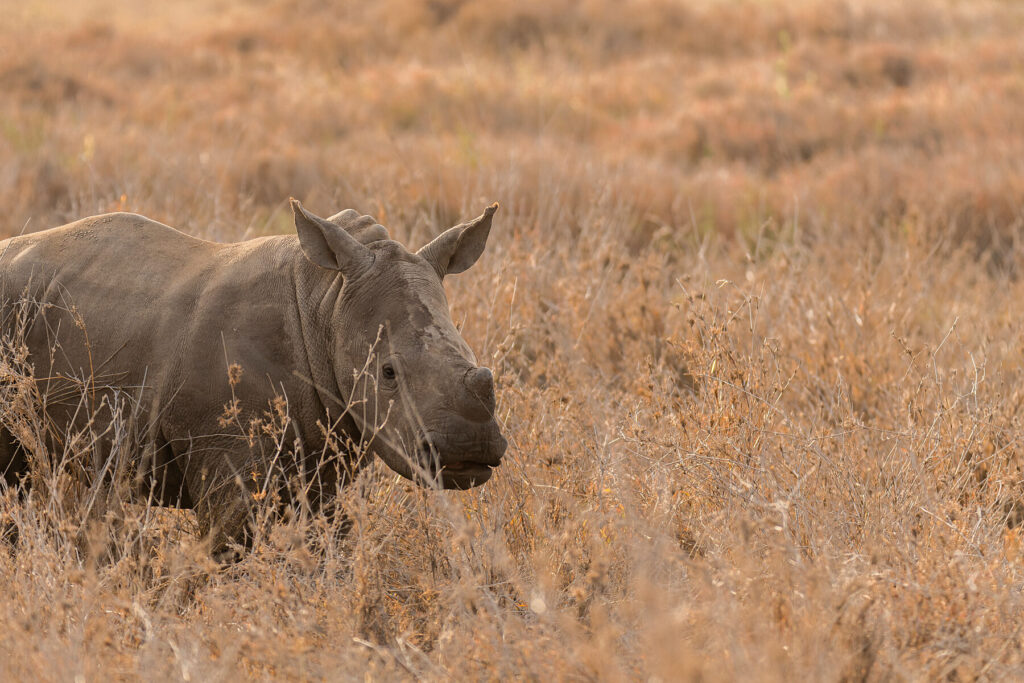
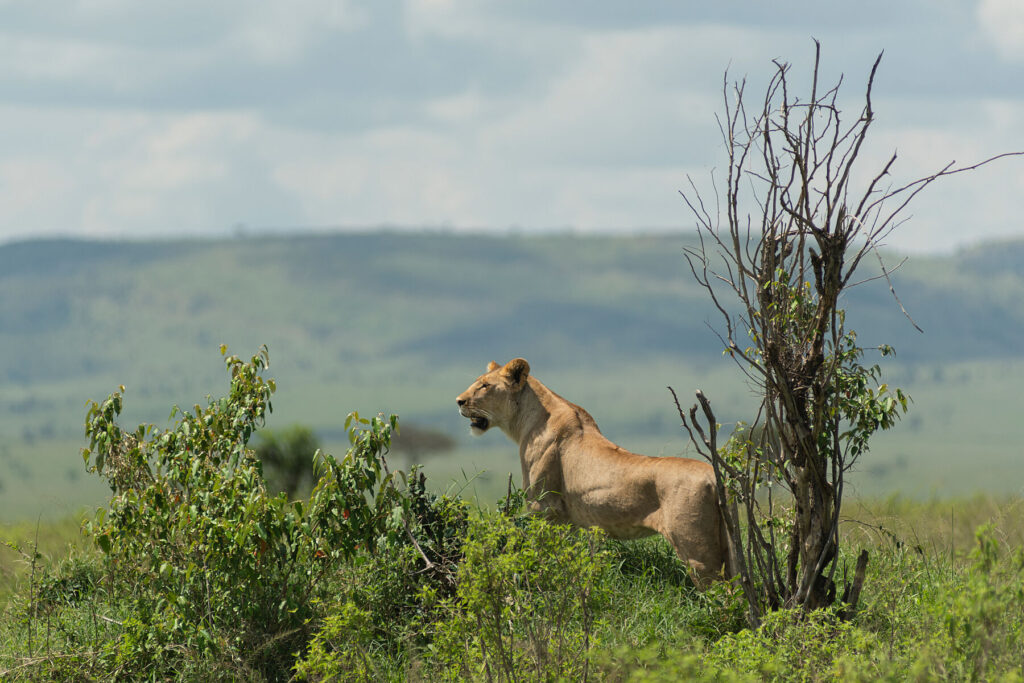
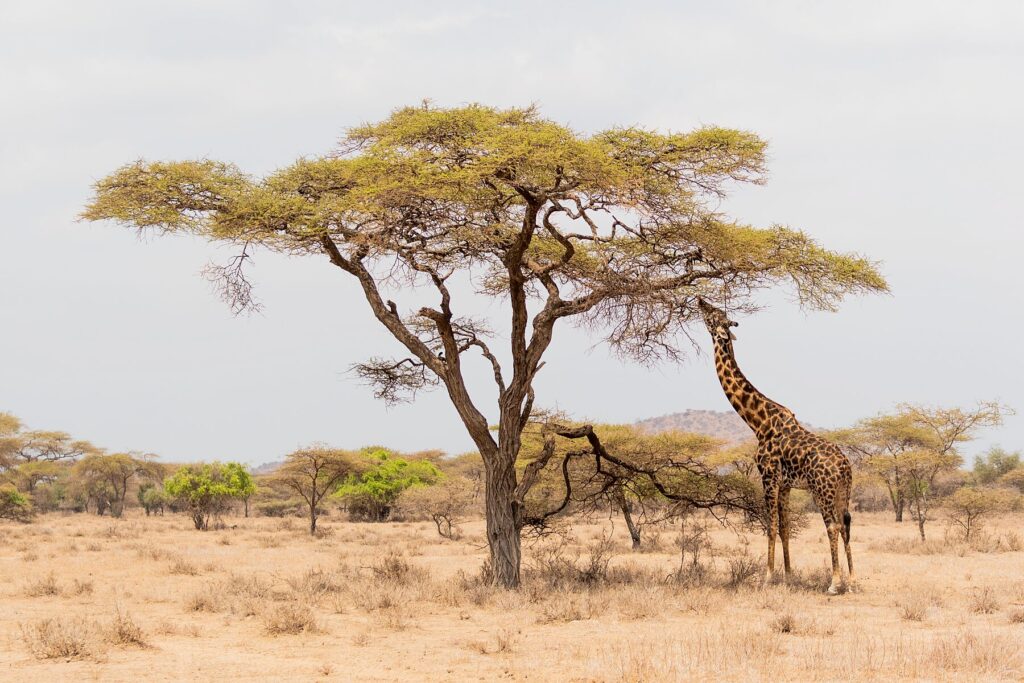

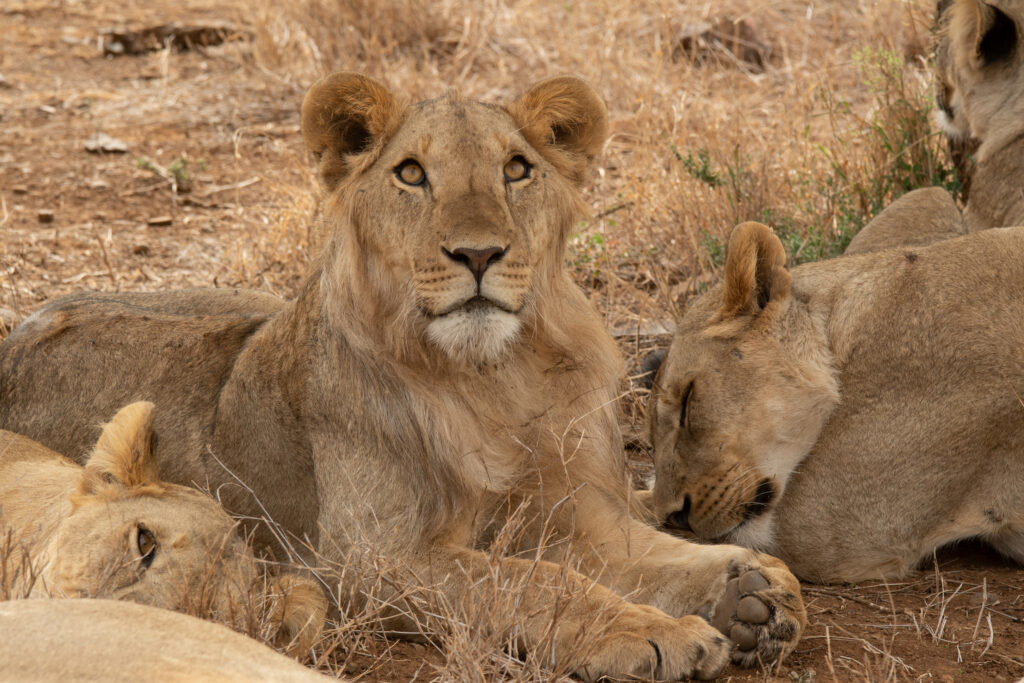
How much does a safari in East Africa cost?
These are just guidelines but all prices include full board accommodation, guide, transport (unless flying), and game drives.
For a budget private safari, you will be looking at paying upwards of $250/300 per person per day. On a budget safari, you will likely be camping and will be accompanied on your trip by a chef who will cook the meals for you at the campsite ready for your return from safari. To reduce the cost further you can opt for a ‘sharing safari’ where you will join others in a car. Of course, these are not very personalised or flexible safaris as you have to stick to the group schedule.
Mid-range is around $500 – $800 per person per day. The main difference between mid-range and budget is that you will now be in a lodge instead of camping and in a car with just your group (depending on the size of your group). There will be an ensuite bathroom and potentially a swimming pool at the lodge. It is possible to fly between lodges instead of driving but the flight will be an extra cost.
The high budget is $900+ At this end of the budget you will be staying in a luxury lodge, with delicious food, probably a pool & spa, and most importantly top quality guides. At this budget, you will be flying between national parks which saves you a lot of travel time and maximises your safari time.
Where is the best place to safari in East Africa?
Kenya or Tanzania?
A lot of people um and err between Kenya and Tanzania, they are a lot the same while also being very different.
Both are great for seeing the Big Five (leopard, lion, elephant, buffalo, and rhino). Although Kenya is definitely better for seeing Rhino than Tanzania.
Tanzania has a popular safari circuit where you will go to the famous parks including Serengeti and the Ngorongoro crater, Tarangire, and Lake Manyara the parks are conveniently close together so you can plan a circuit that doesn’t involve being on the road for days without seeing any animals. However, don’t get me wrong, there are still days of driving 5 or more hours to reach your destinations, don’t underestimate the travel times.
Tanzania is also a great place for cultural tourism, from hunting with the Hadzabe tribe to leaping with Maasai and melting metal with the blacksmiths, there is a lot to learn from the wonderful people of Tanzania.
Kenya’s parks are a little more spread out so driving distances can be longer, however, it also has so much to offer, from the predator-filled plains of the Masai Mara, the unbeatable views of My Kilimanjaro from Amboseli National Park to the flamingo-filled lakes of Naivasha and Nakuru. Kenya also has some great private conservancies which offer a more exclusive safari feel.
Uganda is of course most famous for seeing Gorillas and chimpanzees but not the best for more traditional safari, so if you can it’s good to combine Uganda with Kenya or Tanzania for the full safari experience.
Whichever one you choose you will have an amazing time. So just consider if there is somewhere specific you wish to go.
How long should I travel for?
For many the flight to Eastern/Southern Africa is a long one and can involve jet lag. The traveling distances are long and the roads are generally not great. Therefore to enable you sufficient time to enjoy your safari I wouldn’t recommend coming on safari for less than 10 days.
If your time frame is 2 weeks then I recommend just one country, although it is possible to do a combination of two countries but it will be a bit of a rush. For example, you can see the Gorillas in Uganda and then go to Tanzania to see the great wildebeest migration.
Ideally, you should be traveling for longer than 2 weeks to consider visiting 2 countries to be able to enjoy them fully and maybe get a bit of beach time at the end.
As a benchmark aim to spend 2-3 nights in each place, this will ensure you get a good amount of time actually enjoying the lodge and the area and not just going between lodges all the time.
There are lots of safari options, particularly on the northern circuit in Tanzania where you only spend 1/2 nights in each place before moving on. This is doable because the places are close enough together but I would still recommend spending at least 2/3 nights in at least one place (usually the Serengeti) so you have some time to settle in and relax and not be moving constantly.
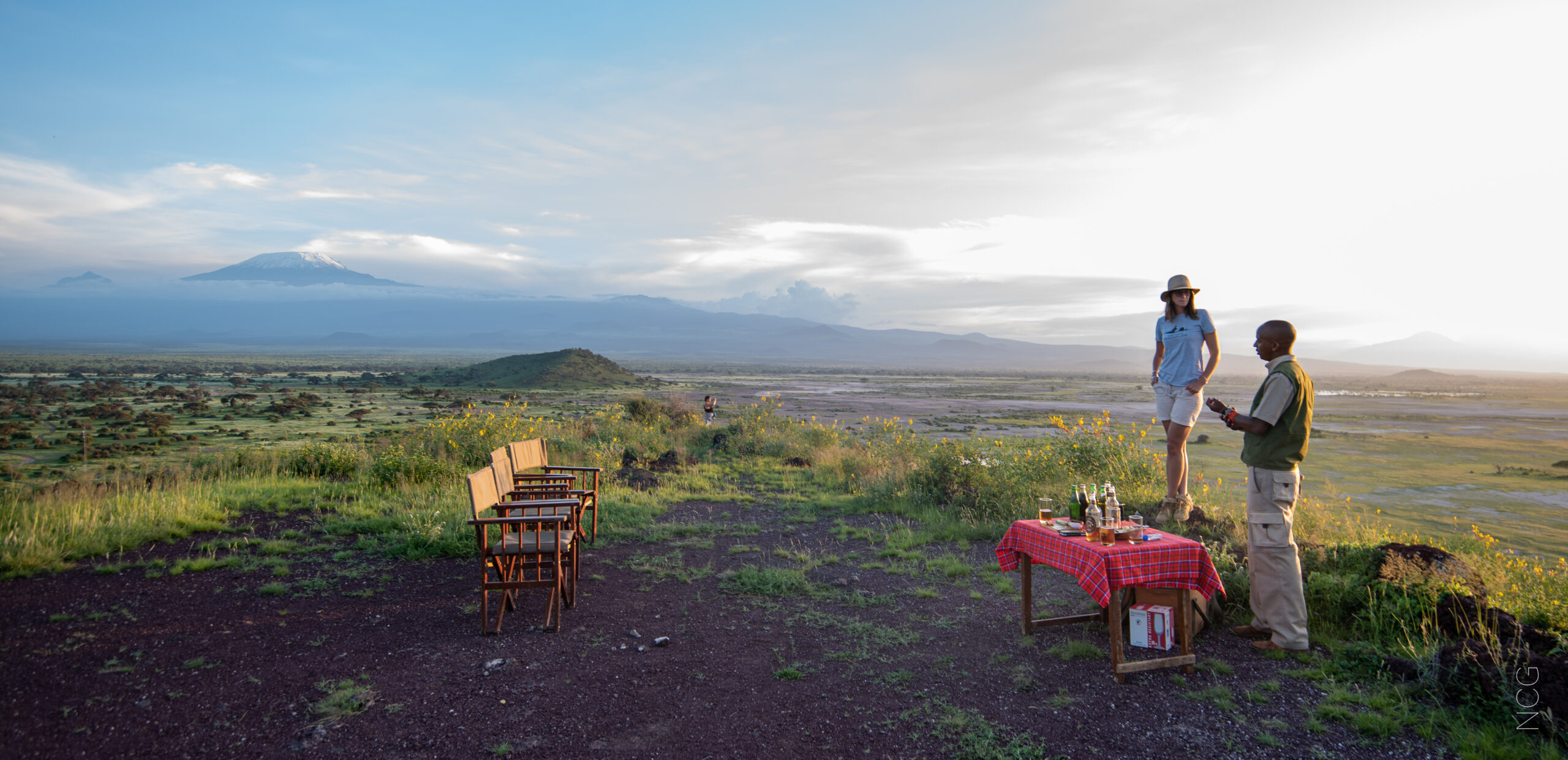
How do I choose an African Safari operator?
There are so many companies out there and the quality of the company varies greatly. The main things you need to look out for when choosing a company are; does the agent have personal experience of travel in Africa, do they offer unbiased advice or are they working with certain lodges, insurance, and support while you are on the trip and good reviews.
Contrary to popular belief going through an agent or a tour company does not make the price more expensive for you. Companies get good deals on accommodation, know the best places to go and provide quality guides. Rather than taking a gamble on a lodge you have never been to with a guide you have never met before it is usually better to go through a trusted company that understands the country, the travel distances, the lodges, and the parks.
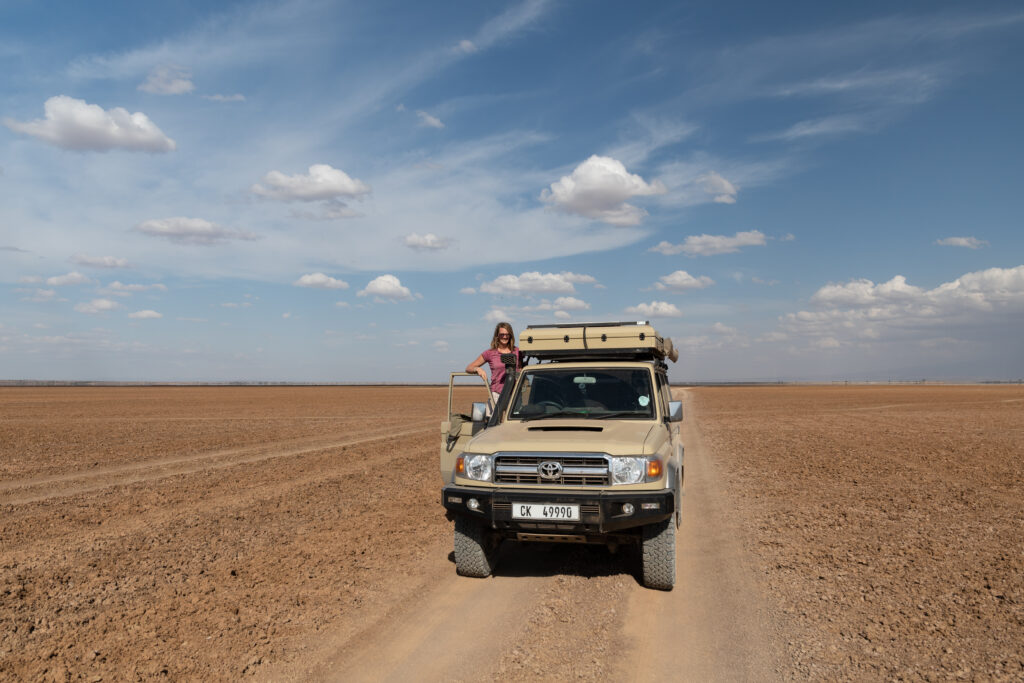
What are the pros and cons of joining a group safari?
The biggest pro, of course, is the price, if you travel with others then it will be cheaper as there are more people to divide all the costs with. For example, the cost of the car, fuel, and driver are all split between more people making it cost less per person.
The cons are that you have no flexibility in your itinerary, you can’t stay an extra night at a lodge or change the destination to suit your liking and you will be on holiday with people you don’t know. This, of course, can also. be a plus, if you get along with them or a minus if you don’t.
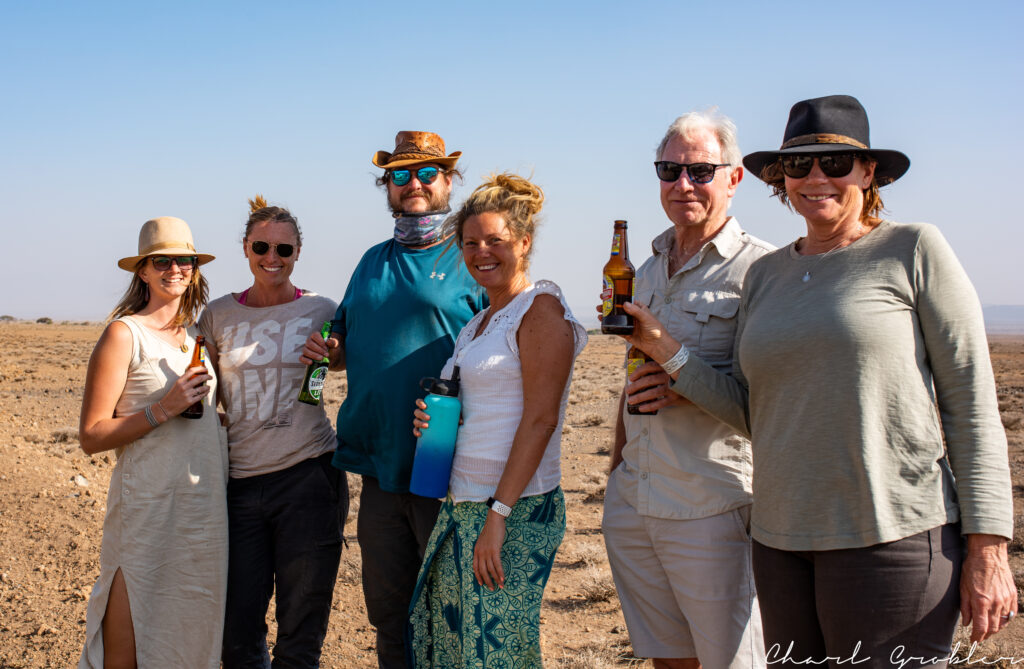
What does a ‘typical safari itinerary’ look like?
Tanzania Sample itinerary:
The traditional safari itinerary consists of the northern circuit.
The northern circuit itinerary includes Tarangire (great for baobab trees and elephants) lake Manyara (tree climbing lions) Serengeti (the great migration) Ngorongoro crater (a good place to see Rhino) and then Zanzibar for some rest and relaxation.
For an off-the-beaten-path safari consider southern Tanzania including Ruaha, lake natron, Mikumi, and Nyerere National Park.
For an active safari, you can cycle or horse ride through Arusha National Park, take on a multi-day hike in the Ngorongoro conservation area climb an active volcano at lake natron, go hunting with the Hadzabe tribe, or climb Mt Kilimanjaro.
For rest and relaxation visit Zanzibar for its beautiful white sandy beaches, delicious seafood, snorkeling, diving, and even swimming with whale sharks on mafia island (Oct – Feb).
Stone Town on Zanzibar island also offers an insight into Swahili Arabic culture and is a wonderful place to wander the streets trying delicious street food, bartering in the markets, and sipping tea or cocktails on the rooftops overlooking the ocean.

Kenya sample itinerary:
Masai mara (migration) lake Naivasha/lake Nakuru, Samburu national park (Northern 5 animals) then Diani for beach time.
For an off-the-beaten-path safari consider conservancies rather than national parks including Naibor or Mara North Conservancy (outside the mara) and Lewa Conservancy (great for rhinos) among many more.
For an active holiday, you can cycle or walk in Hell’s Gate National Park, or the Aberdare National Park, horse ride or camel ride in Laikipia, go fishing on the foothills of Mt Kenya, or even climb Mt Kenya.
Visit Diani, Mombassa, Watamu, or Lamu Island for beach time, snorkeling, water sport, and delicious seafood at the end of your safari.
Lamu island also offers an insight into Swahili Arabic culture and is a wonderful place to wander the streets trying delicious street food, bartering in the markets, and sipping tea or cocktails on the rooftops overlooking the ocean.
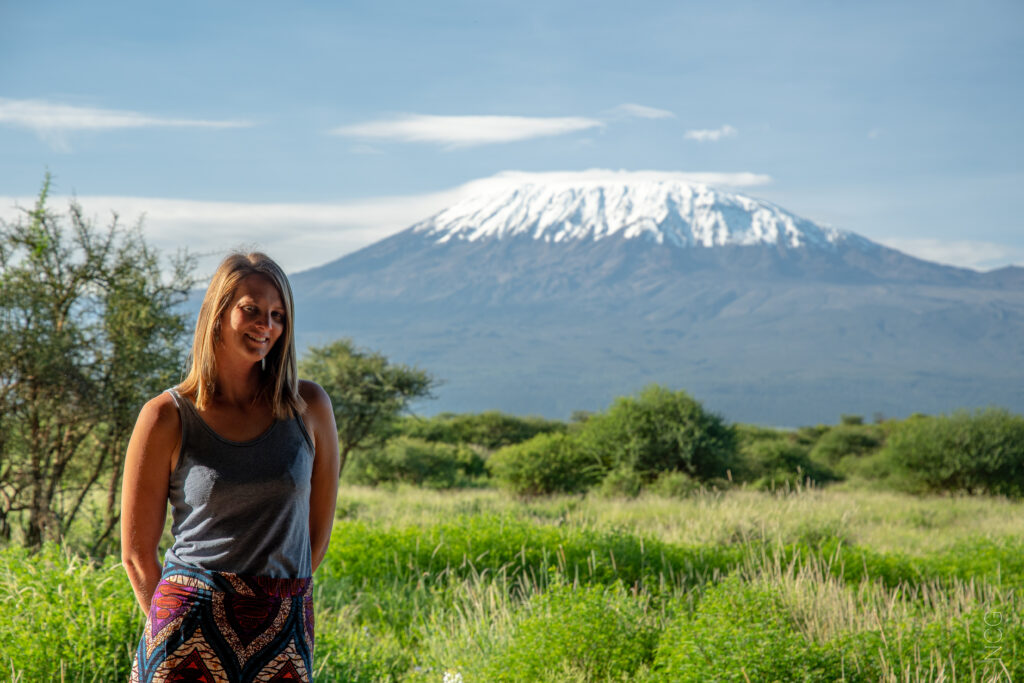
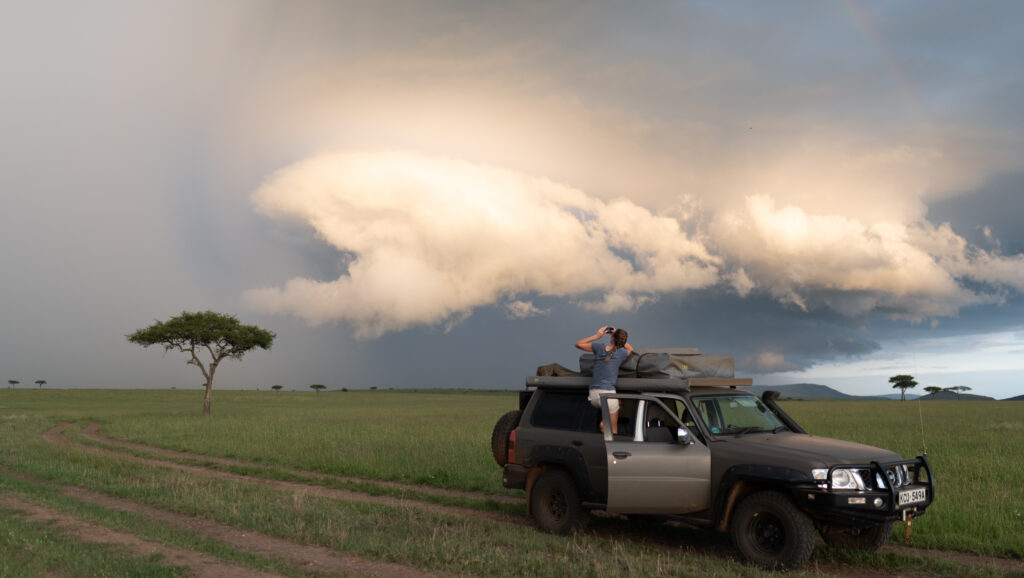
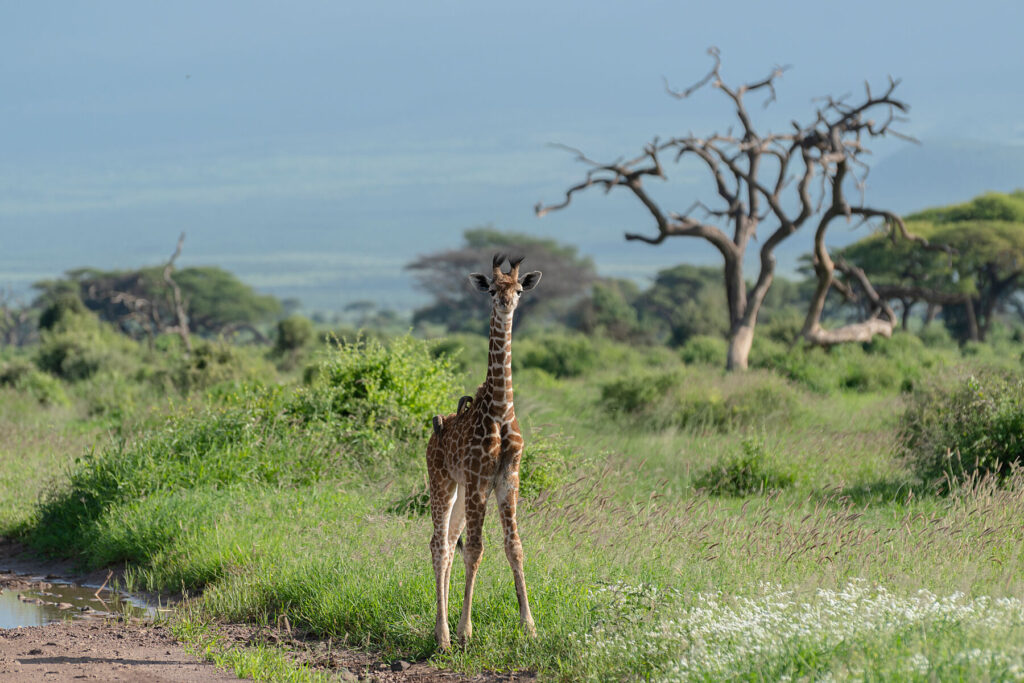
What does a typical day on safari look like?
A typical day on safari looks a bit like this:
5:30 am – wake up call (usually with tea/coffee and snacks)
6:00 morning game drive – bush breakfast for come back to the lodge for breakfast
9/10:00 back to. the lodge to rest
1:00 lunch
2:00 Relax at the lodge or go for a swim
3:30 afternoon tea
4:00 afternoon game drive
6:30 Return to the lodge
7:30 dinner
8:30/9:00 drinks by the fire/bedtime
This is a ‘typical day’ but it can vary, for example, you might set out in the morning with a packed lunch and go out for a full day or maybe skip a morning safari and have a relaxed morning at the lodge.
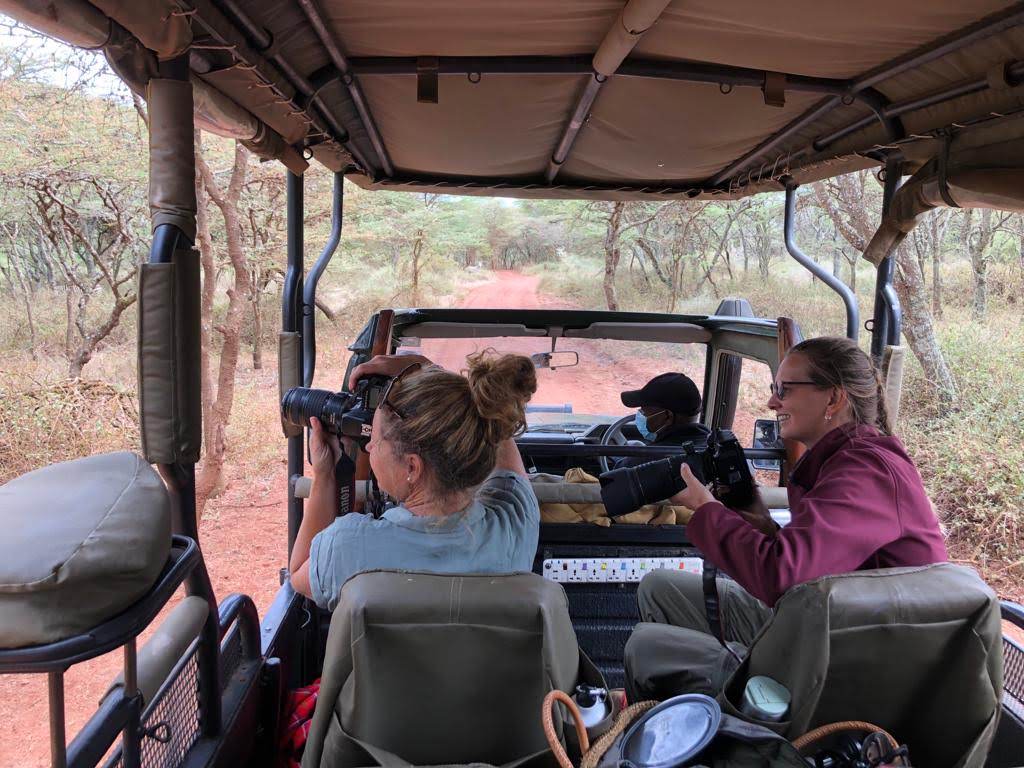
How do I budget for an African Safari?
The minimum you will probably be spending on a 4-5 day all-inclusive safari package in East Africa is around $2000 so it’s definitely something you need to think about budgeting for.
Most safari companies will require a deposit at the time of booking, this varies from around 20-30% of the total safari price. This deposit allows the company to book the accommodation so it remains available at the time of your travel.
The remaining balance will then need to be paid before your safari, usually around 45-60 days before your arrival.
Therefore this might be the kind of holiday you need to save up for in advance. It’s also a good idea to book this kind of holiday in advance so you can choose your accommodation and not just go with what is left.
How far in advance do I need to book a safari?
For a high-season safari from July – September and in December you need to book at least 6 – 12 months in advance if you want to ensure that you get all the accommodation you want.
For a green season safari it’s a good idea to book 3-4 months in advance.
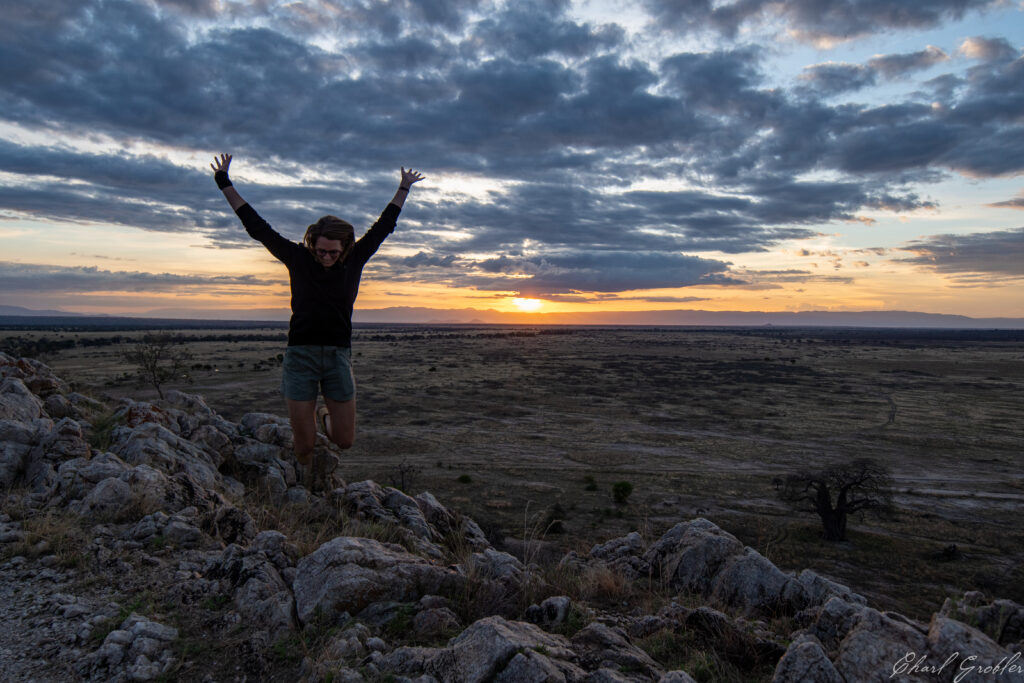
How important are safari guides?
The safari guide is the most important person on your whole trip. You will be spending most of the day with the guide and they are the ones who will be providing you will all the information about the animals and nature. If you end up on a safari with a bad guide it will really affect the quality of your trip. Make sure you go on safari with a reputable company that employs suitably qualified guides and who pay their guides well, to ensure you have the best experience.
If you are particularly interested in photography ask for a guide who is familiar with photography who will be experienced in getting the best angles and understands lighting
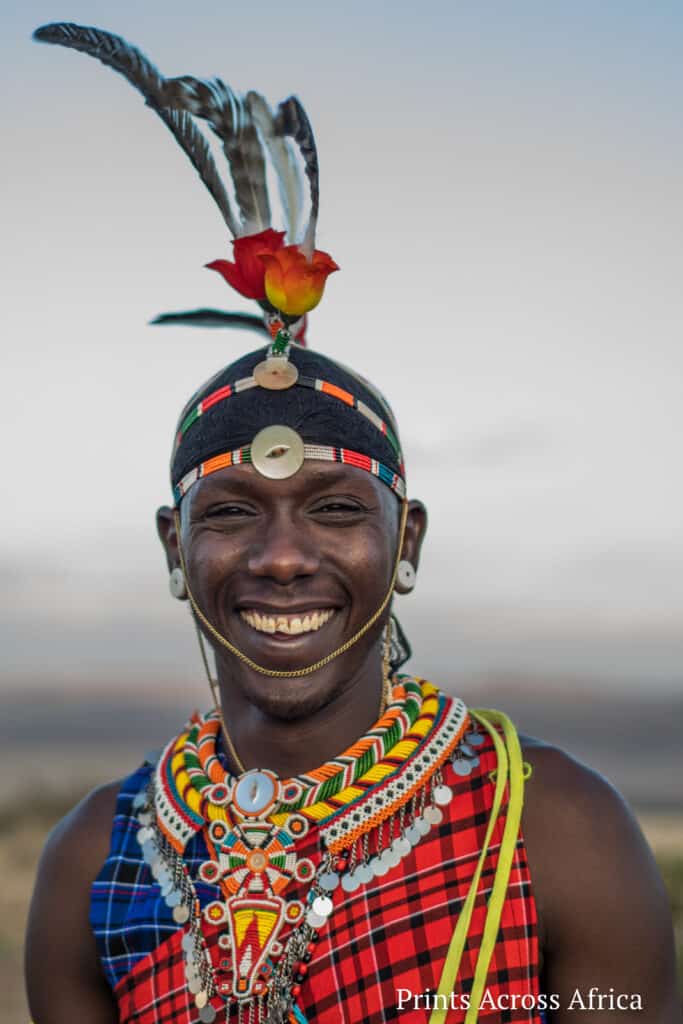
Is an African Safari Safe?
Of course, like every continent and country, there are safe places and some not-so-safe places. If you book with a certified agent and stick to your itinerary there should be no issues at all.
In places like Nairobi, Kampala, and Arusha, like any other big town/city you need to use common sense, don’t walk around at night, don’t carry too much cash, stick to the main areas and you should be fine. While on safari you will be safe as long as you listen to your guide, and respect the animals.
What is the difference between ‘full board’ and ‘Game package’
A ‘full board’ safari is where you have the same guide throughout your trip. Your guide will meet you at the airport and drive you from lodge to lodge as well on all the game drives.
At the lodges, you will be there on a full-board basis. This means you will get all your meals from the lodge but will not be doing activities with the lodge. Drinks are sometimes included and sometimes not, it depends on each individual lodge. With a full board safari, you will do your safaris and drive between lodges in a closed land cruiser vehicle.
‘Game package’ is where you will go between lodges, usually by airplane. Once you land a guide from the lodge will pick you up and you will do your game drives with the guides from the lodge. Either in an open vehicle or a closed vehicle depending on the lodge.
There are pros and cons to each. With a game package, you usually have to share the vehicle with other guests at the lodge (unless you have paid for exclusive use of the vehicle). This means you have less flexibility in terms of what time you go out when you come back, and how long you spend at each sighting. With the full board, you will remain in your private vehicle so you can decide on times and activities etc.
On the plus side for the game package, the guides are usually experts in that particular area as that is the only place they guide. In addition, the vehicles are usually open vehicles which I personally find more fun.
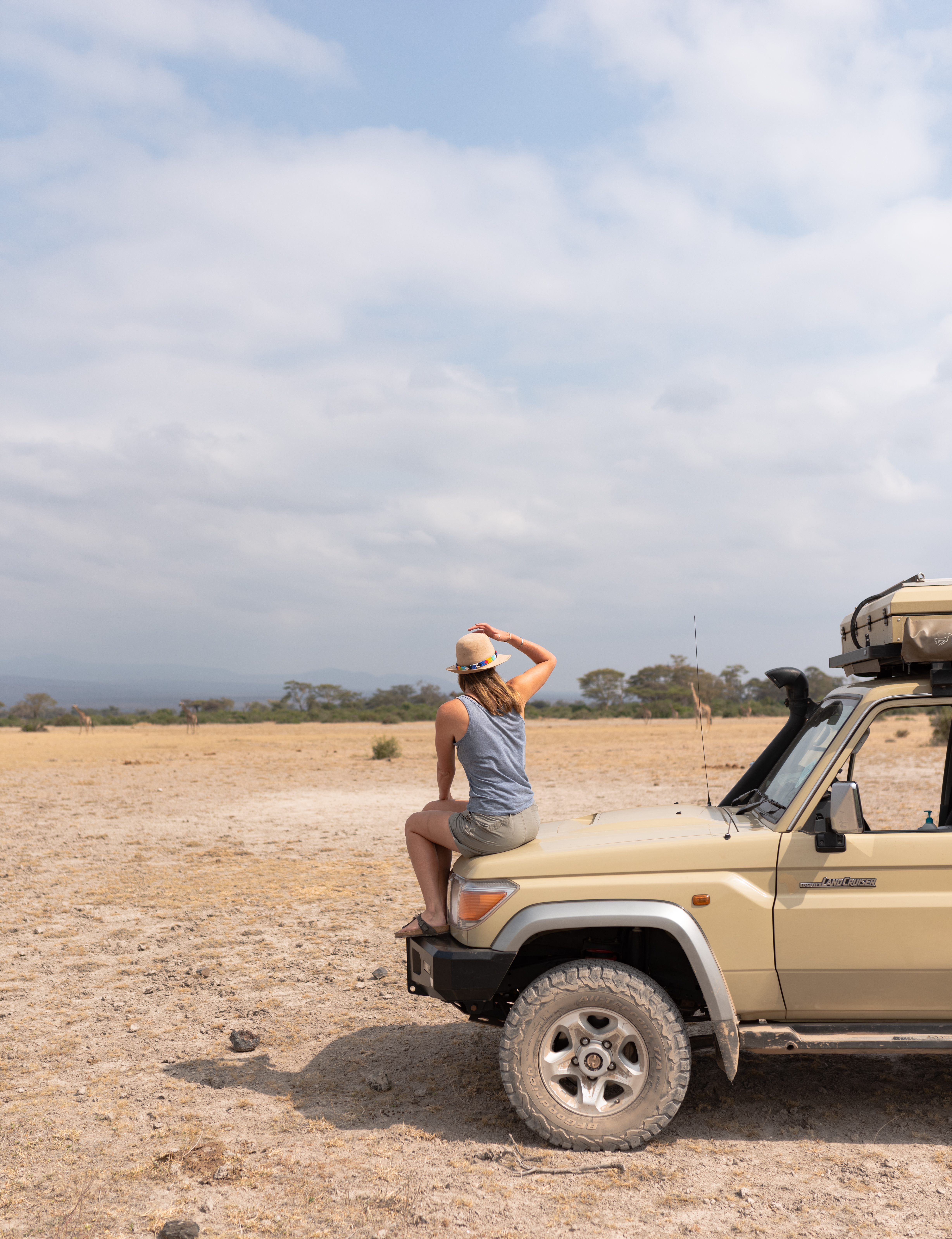
Can I book a safari alone or should I go through a travel agent/company?
Planning a safari alone is no easy feat, some places don’t even accept private bookings and only take bookings through companies. You will also be responsible for paying and organising all the park fees, car fees, planning your route, booking accommodation and much more.
Contrary to popular belief going through an agent or a tour company does not make the price more expensive for you. Companies get good deals on accommodation, know the best places to go and provide quality guides. Rather than taking a gamble on a lodge you have never been to with a guide you have never met before it is usually better to go through a trusted company who understands the country, the travel distances, the lodges, and the parks.
What else can I do besides a traditional game drive?
In addition to your game drive there are a number of activities you can do to ensure you experience Africa to its fullest. Activities include;
- walking safaris (min age of 12)
- a hot air balloon safari (around $600 extra)
- night game drives to see the nocturnal animals (around $50)
- spa treatments (price varies)
- horse riding safari (around $90)
- mountain biking ($50-70)
- cultural activities (price varies)
- multi-day hikes
- fly camping
- visiting a local school/village and taking donations to them or just interacting with the community.
Ask your safari provider about what options are available to you.
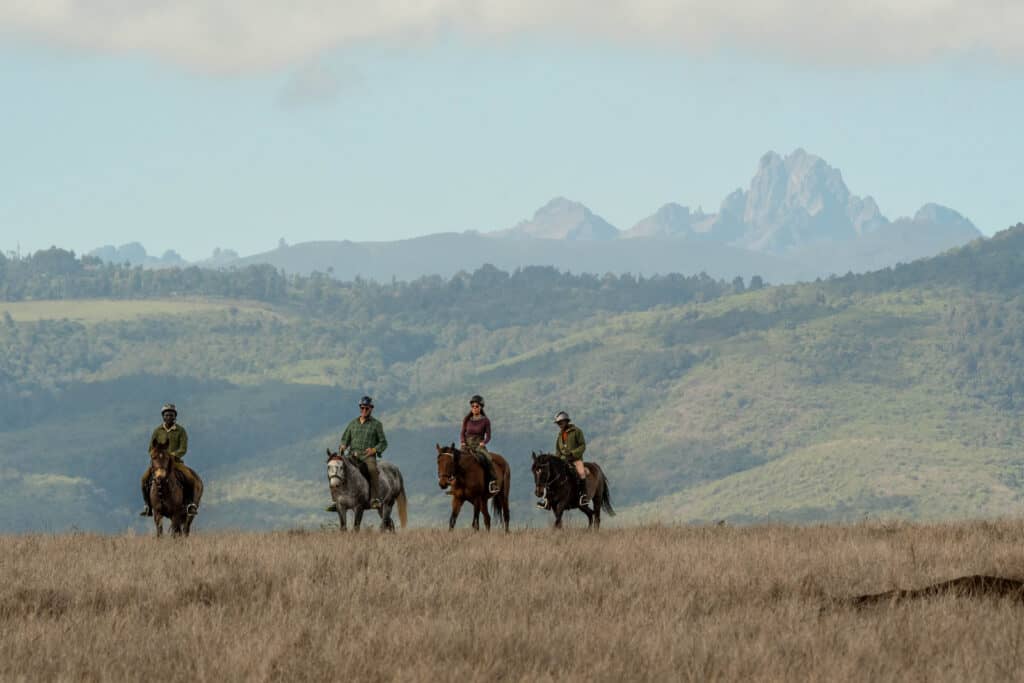
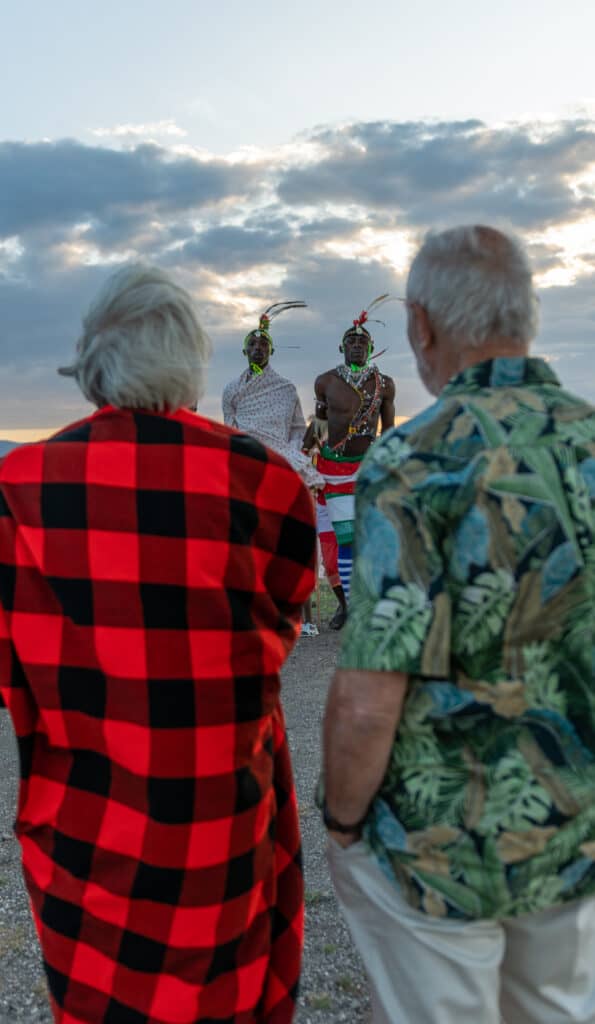

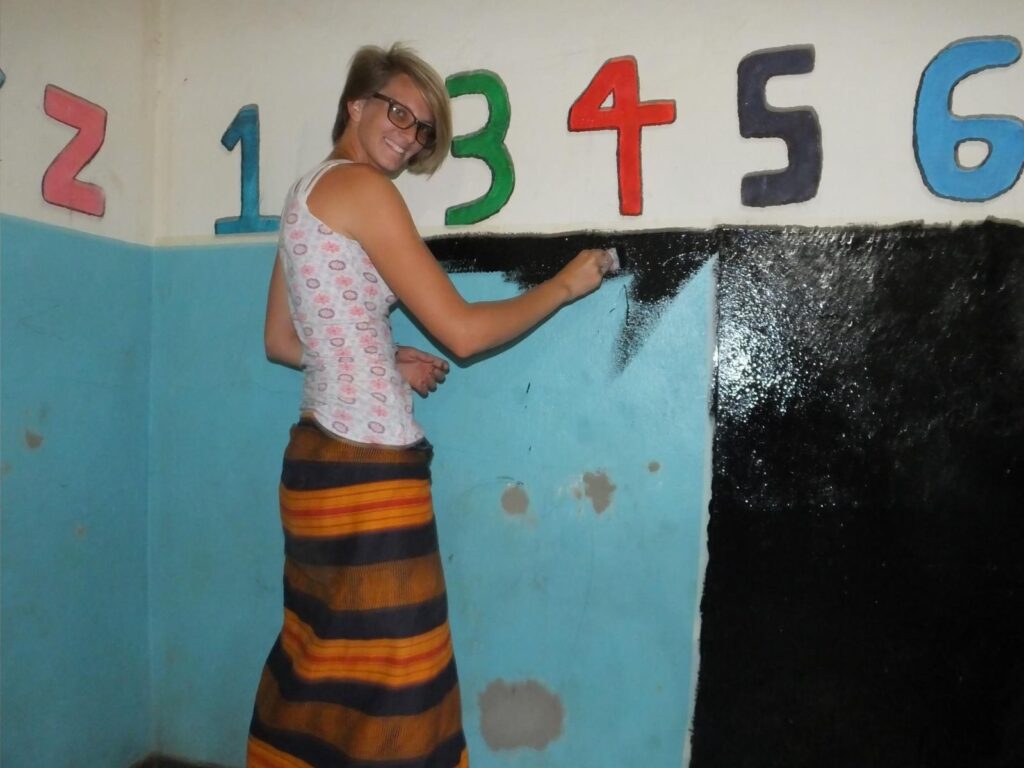
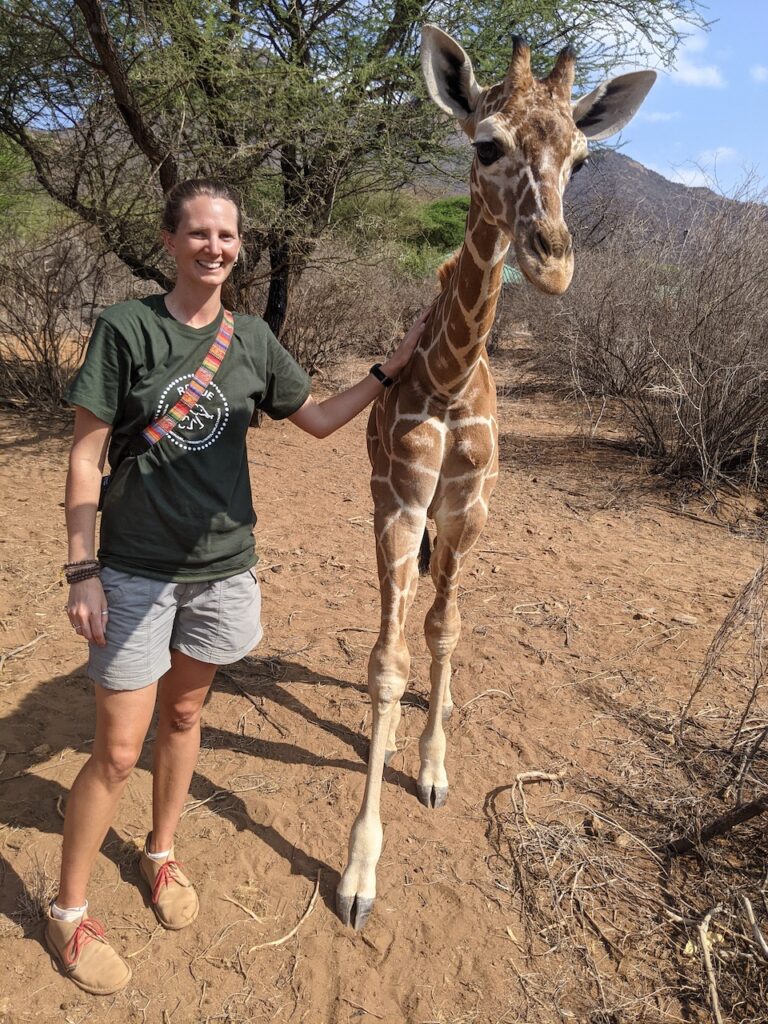
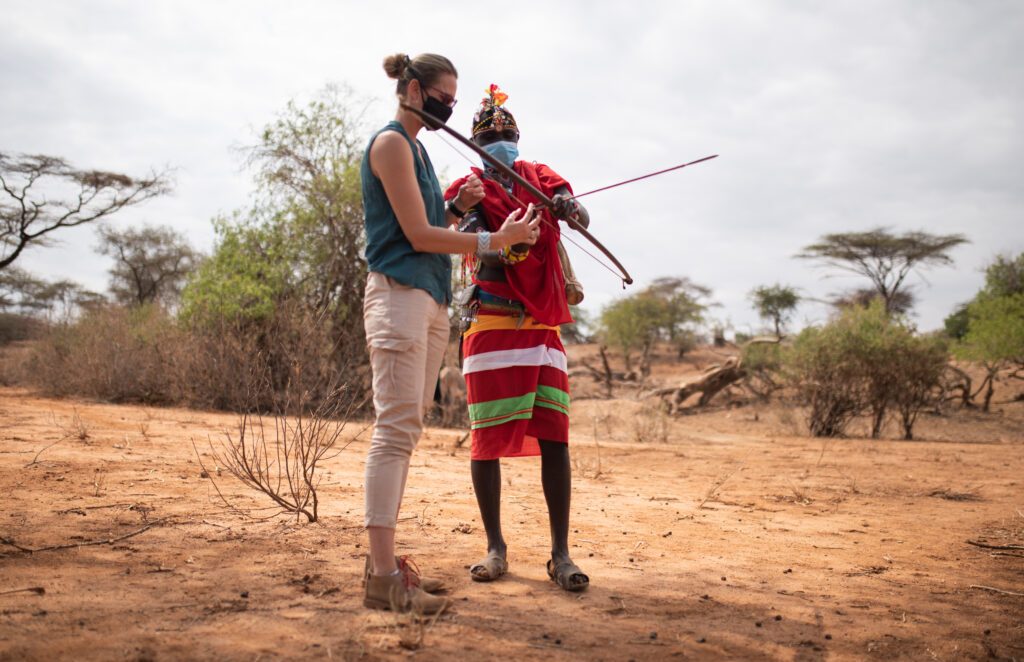
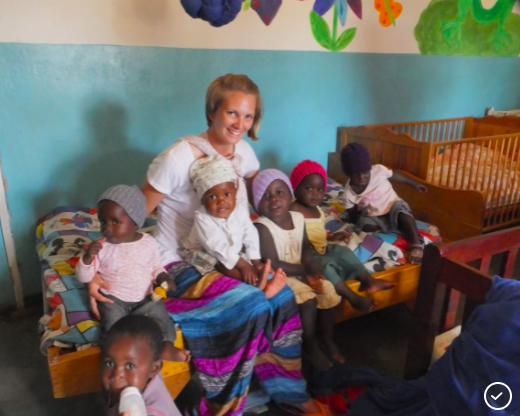
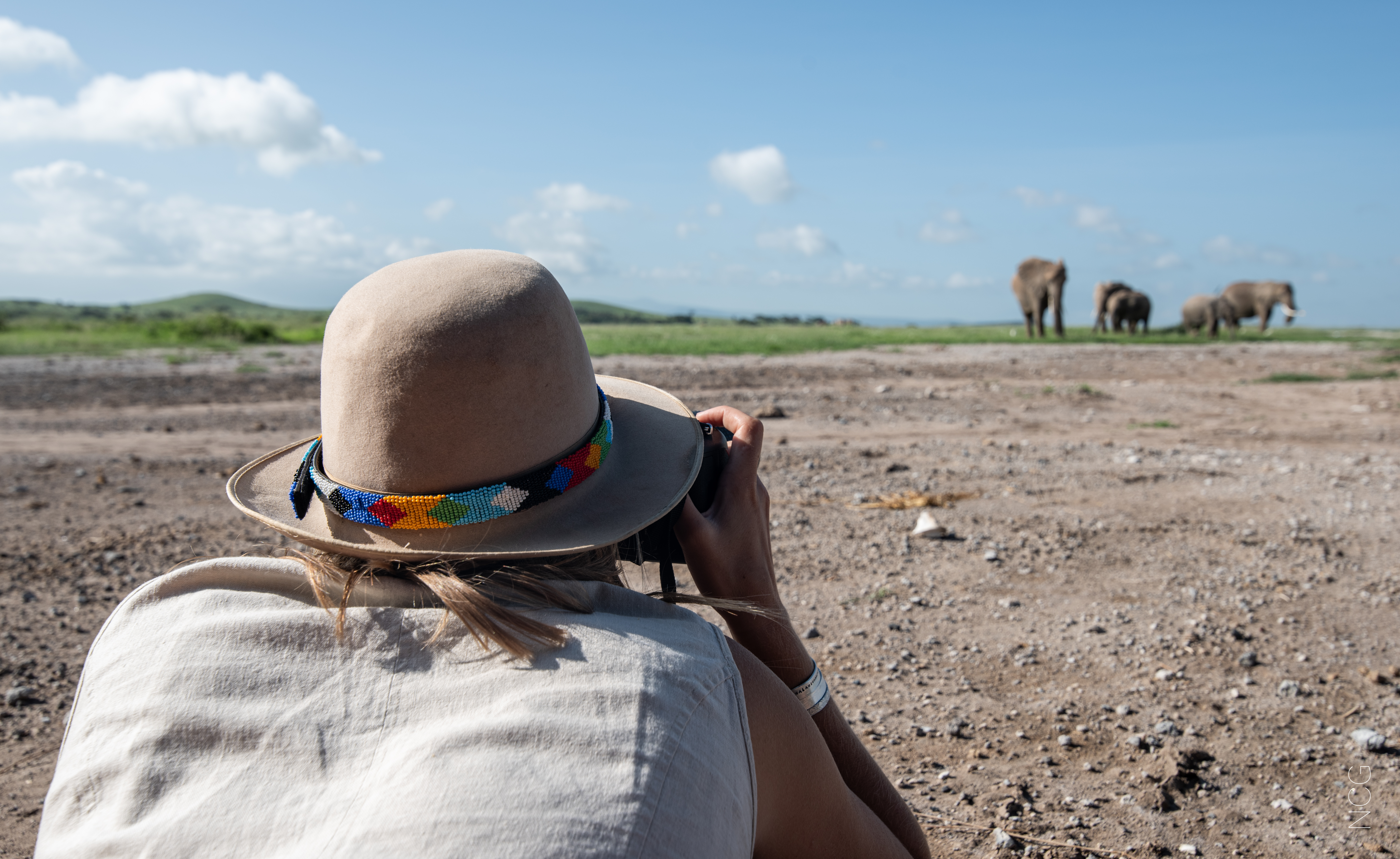
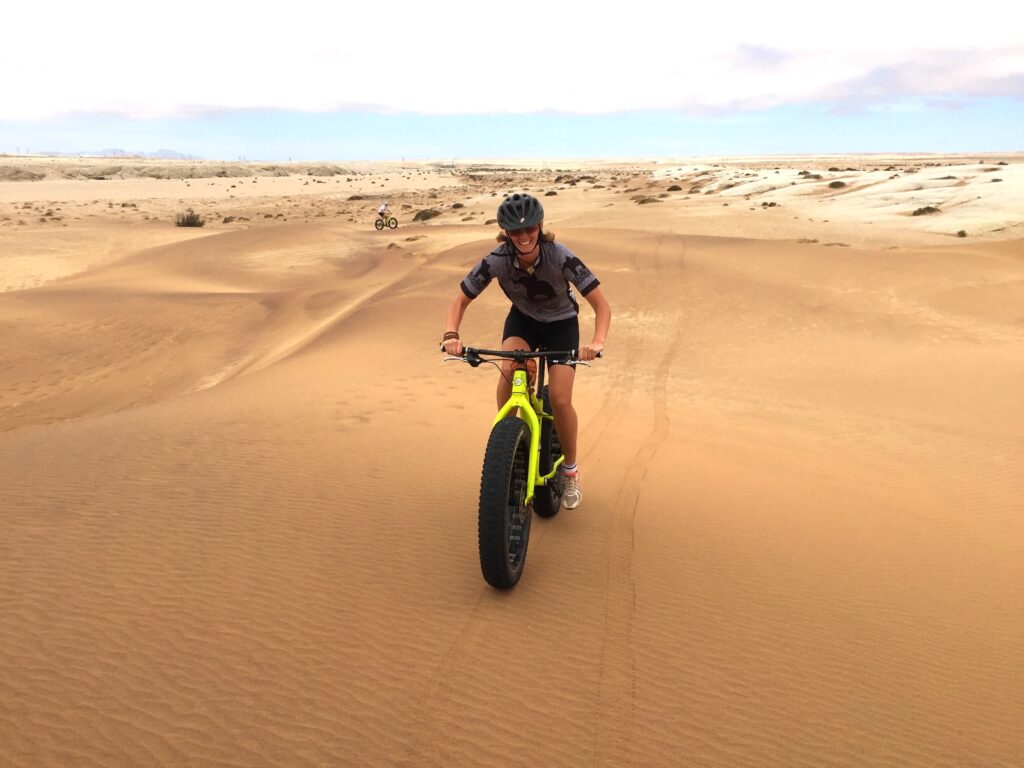
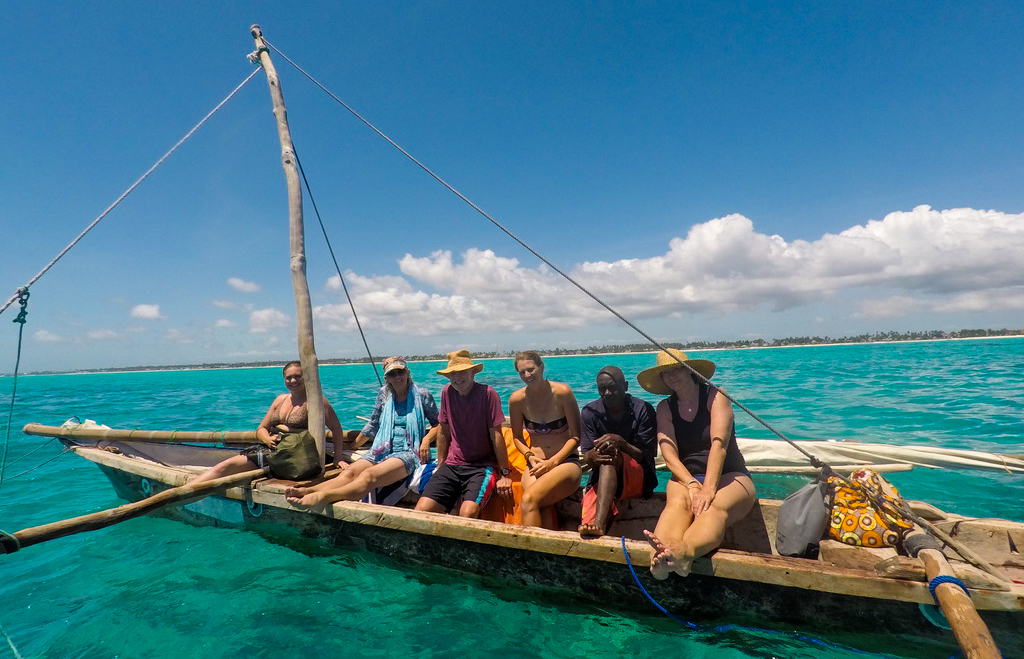
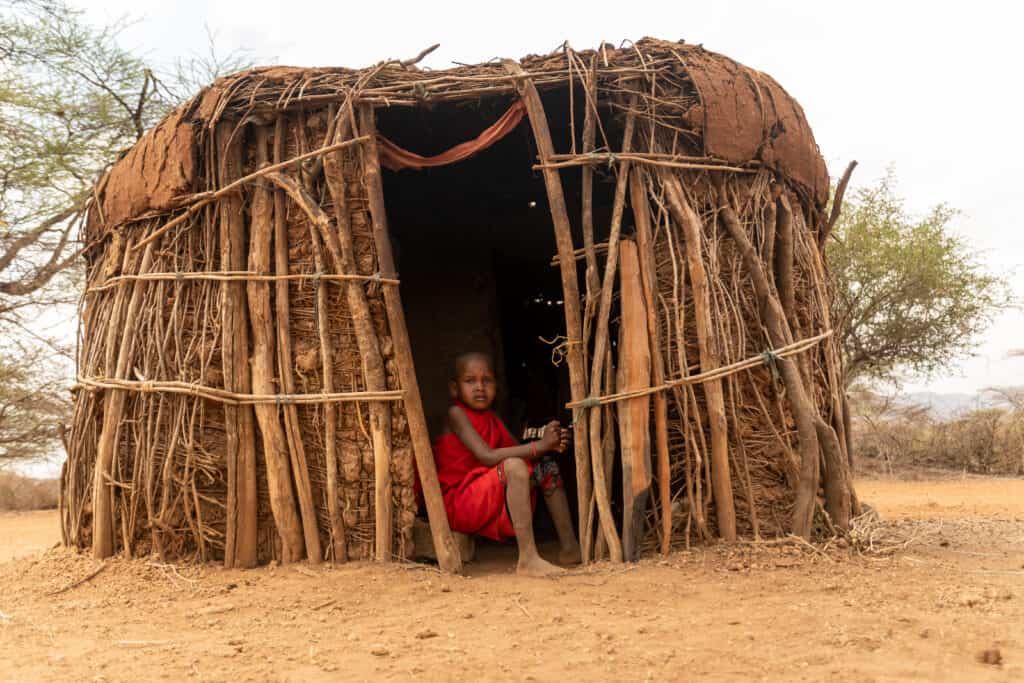
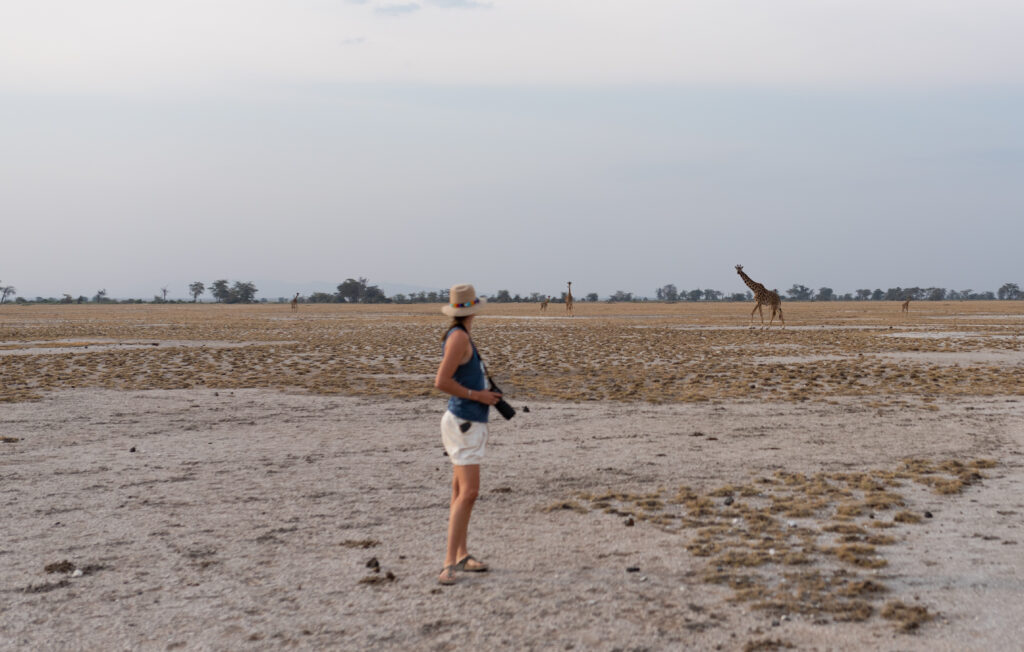
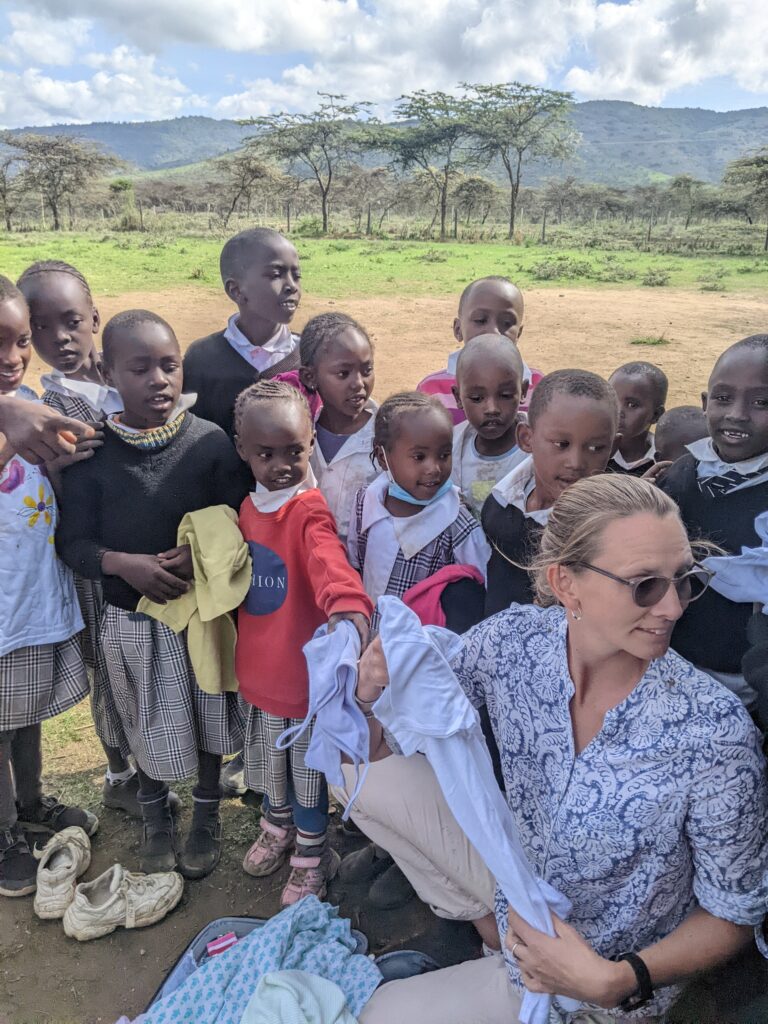
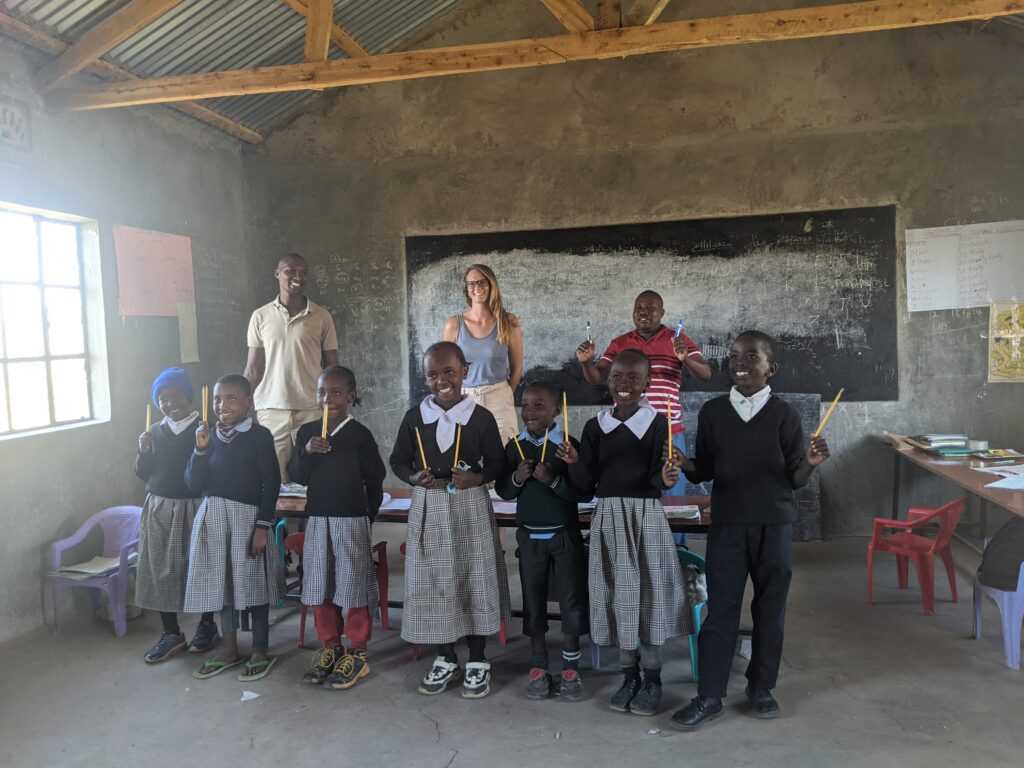
Is East Africa a good option for Family Holiday?
Yes, an African safari is a great option for a family holiday. Of course, there are things to consider, some lodges are more child friendly than others. Some even have an age limit so make sure to check with your safari provider.
I definitely recommend taking children on safari, it’s great for them to see the animals but also to interact with the local kids and learn about their culture and way of life.
However, do consider that safari consists of early mornings and long days, sometimes driving between camps can also be long so if you are traveling with young kids try not to drive for too long between camps.
Consider the temperament and interests of your children, do they like animals, can they sit in a car for a long time, sometimes it all depends on the children individually.
Some camps have children’s activities and offer babysitting services so you can potentially leave your child with the camp while you are on safari if they are too tired on any particular day.
For walking safaris the child has to be 12 years old but there are plenty of nature walks inside the camps that the child can do instead, they just can’t go out into the national park on foot.
Ask the organisers to find lodges with swimming pools this is great for entertaining the kids during the break between safaris.
Feeling inspired? Answer a few questions in the safari planning quiz below and let me organise your dream safari. Or schedule a safari planning call with me.
Questions for after you have booked your safari
- What type of vehicle will we use for the safari?
- What does a domestic flight airplane look like, is it safe?
- What are the luggage restrictions?
- What should I pack?
- What will the food be like?
- I am a vegetarian/vegan/have food allergies, will they be able to cater to me?
- Are there any medical precautions to take?
- How much money will I need?
- How much should I tip?
- Will there be Wifi?
- What is the difference between a lodge, a tented camp, and camping?
- Do I need to know any of the local languages?
- What do I need to know about the culture?
- What are the toilet facilities like while on safari?
What type of vehicle will we use for the safari?
A: If you are on a ‘full board’ safari you will be in a closed long-wheelbase land cruiser, with a pop-up roof. Like the ones in the photo below:
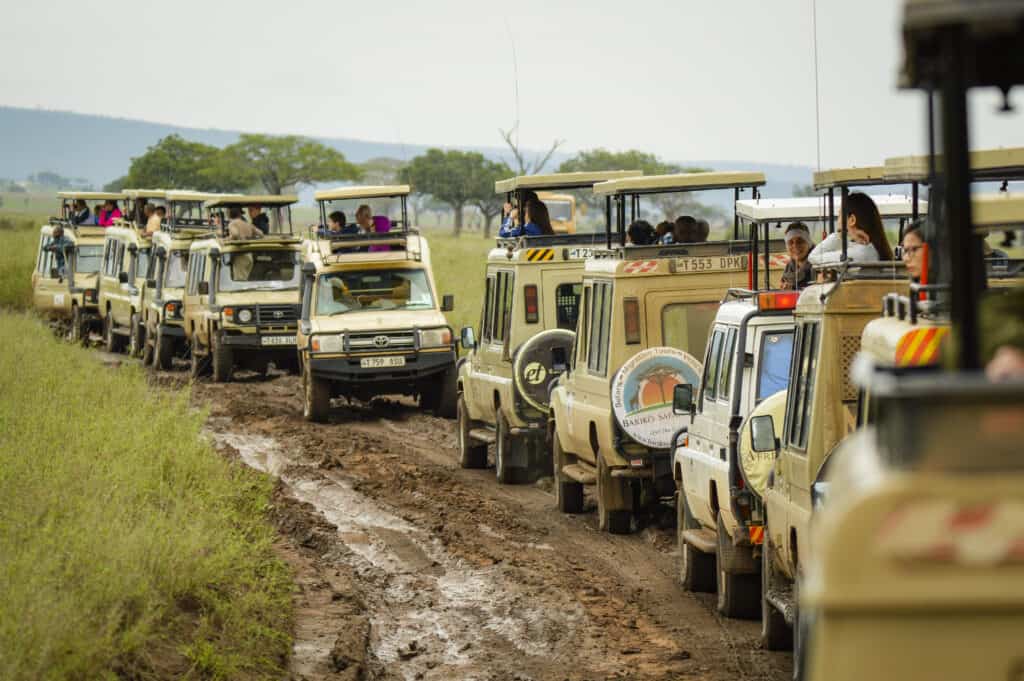
If you are on a ‘game package’ safari, one where you go on safari with the lodge you might be in an open land cruiser or a closed one, it depends on the lodge. The open vehicles look like this:
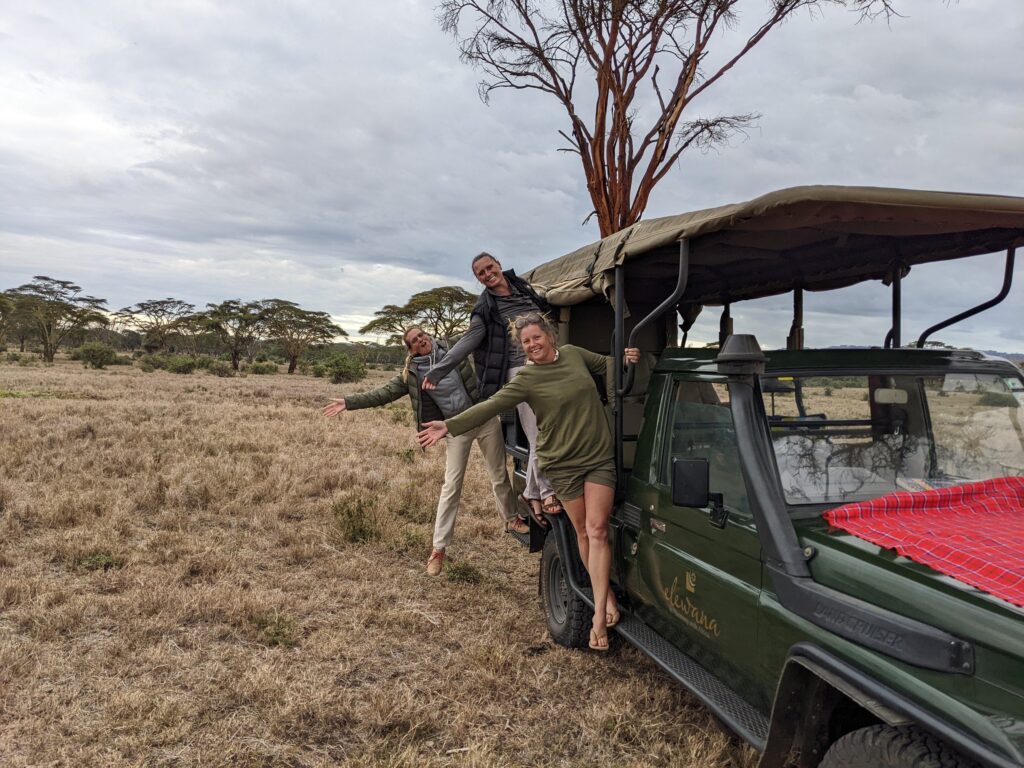
What does a domestic flight airplane look like, is it safe?
The small ‘bush’ airplanes look like this:
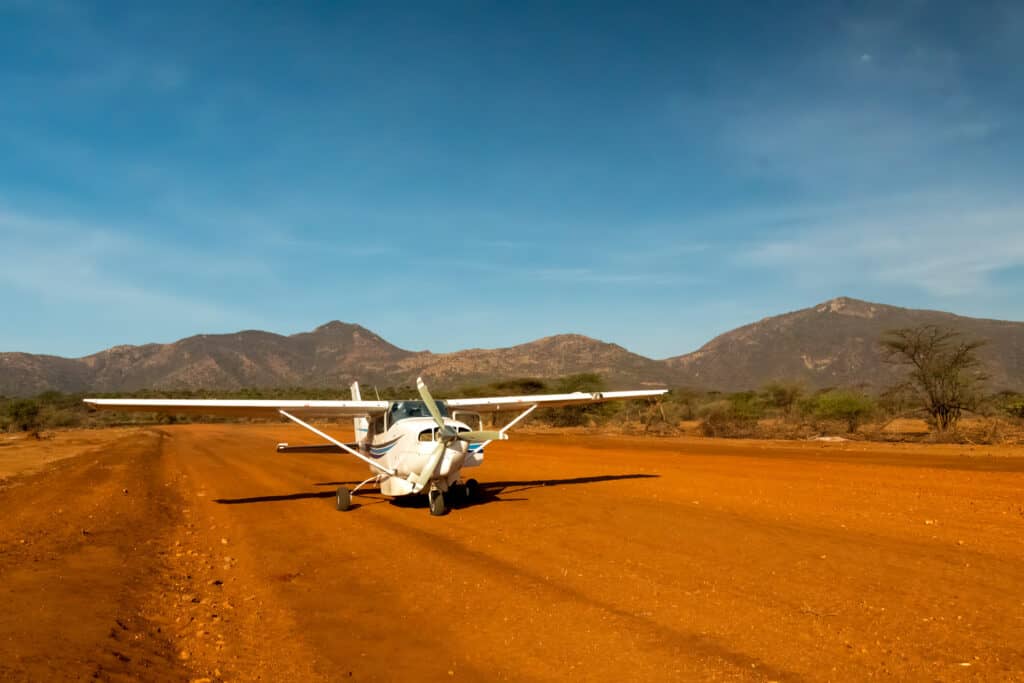
They are both safe and fun to fly in and you get great views out the window as you travel so keep your camera/phone with you.
What are the luggage restrictions?
If you are flying on any domestic flights then there will be a baggage restriction, usually 15/20kg in a soft-sided bag, not hardshell.
If you don’t have any domestic flights then there are no baggage restrictions as such but bear in mind that what you carry has to be transported in or on top of the land cruiser so only carry what you need.
What should I pack?
You do not need to be in full ‘safari’ attire, you just need to be in comfortable neutral-colored clothes. Try not to wear dark blue, some places have flies that are attracted to the colour.
Make sure you have a sturdy pair of shoes especially if you want to do a walking safari, a hat, and layers for the cold in the morning and the evenings. Shorts and a T-shirt are sufficient for the daytime.



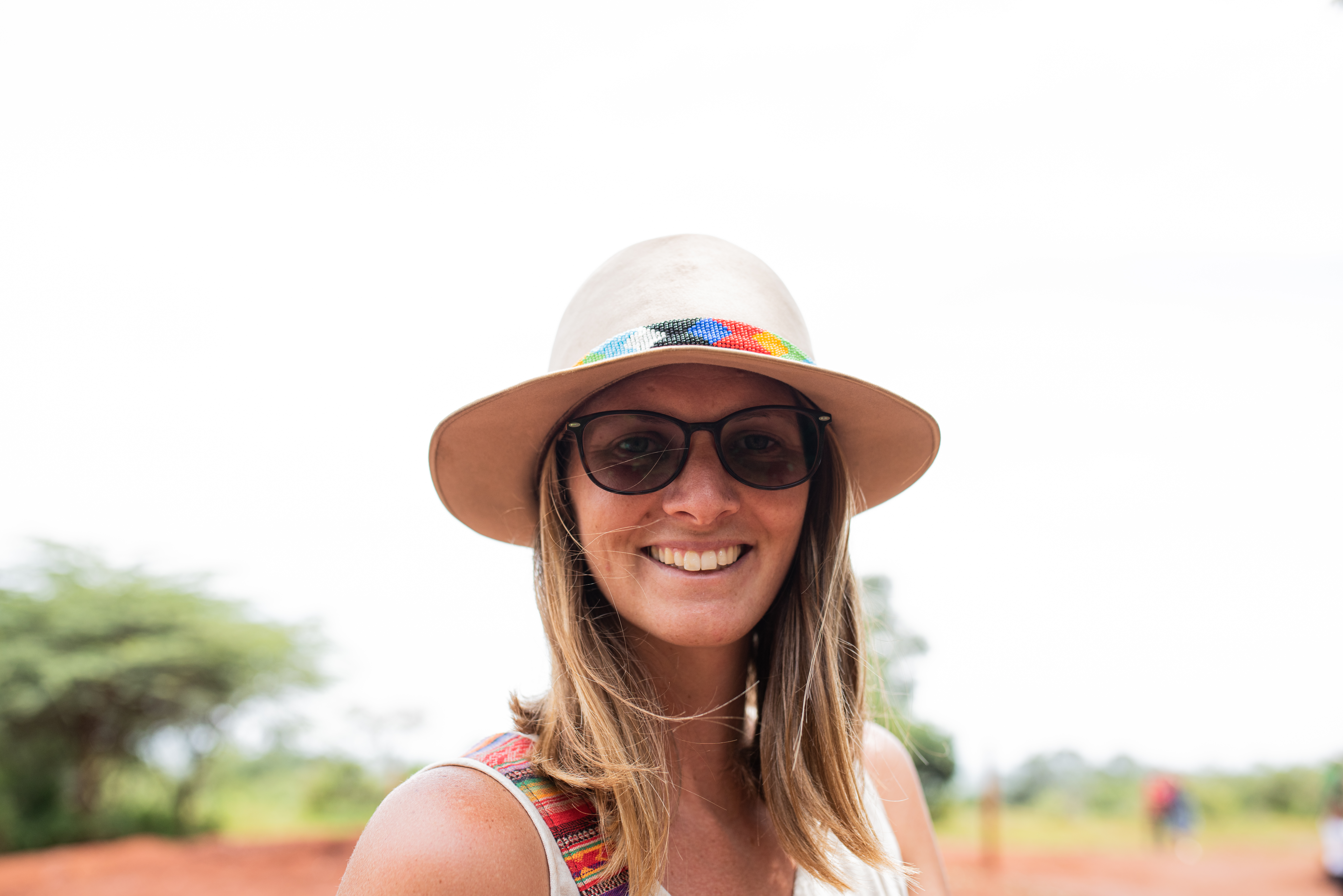
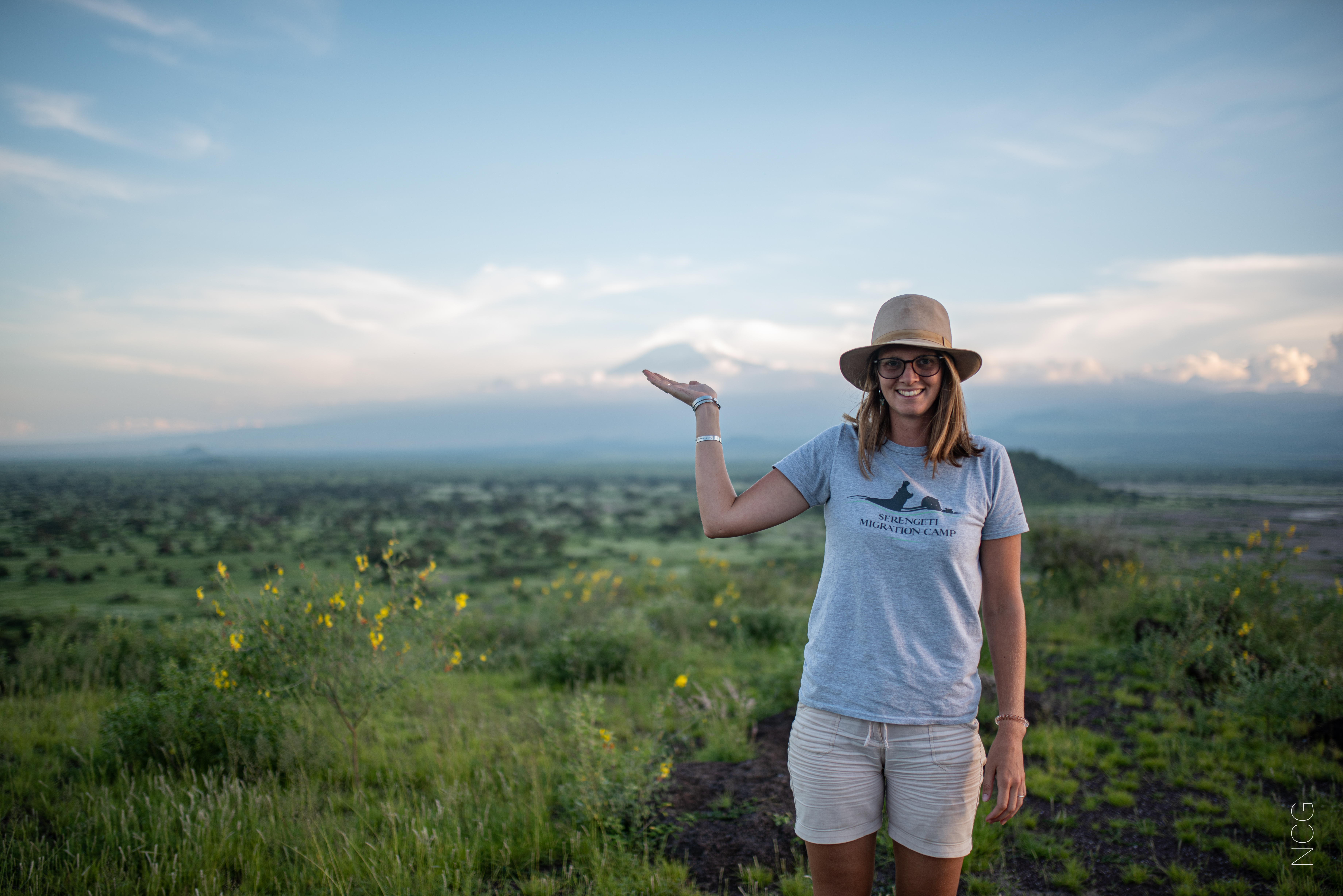
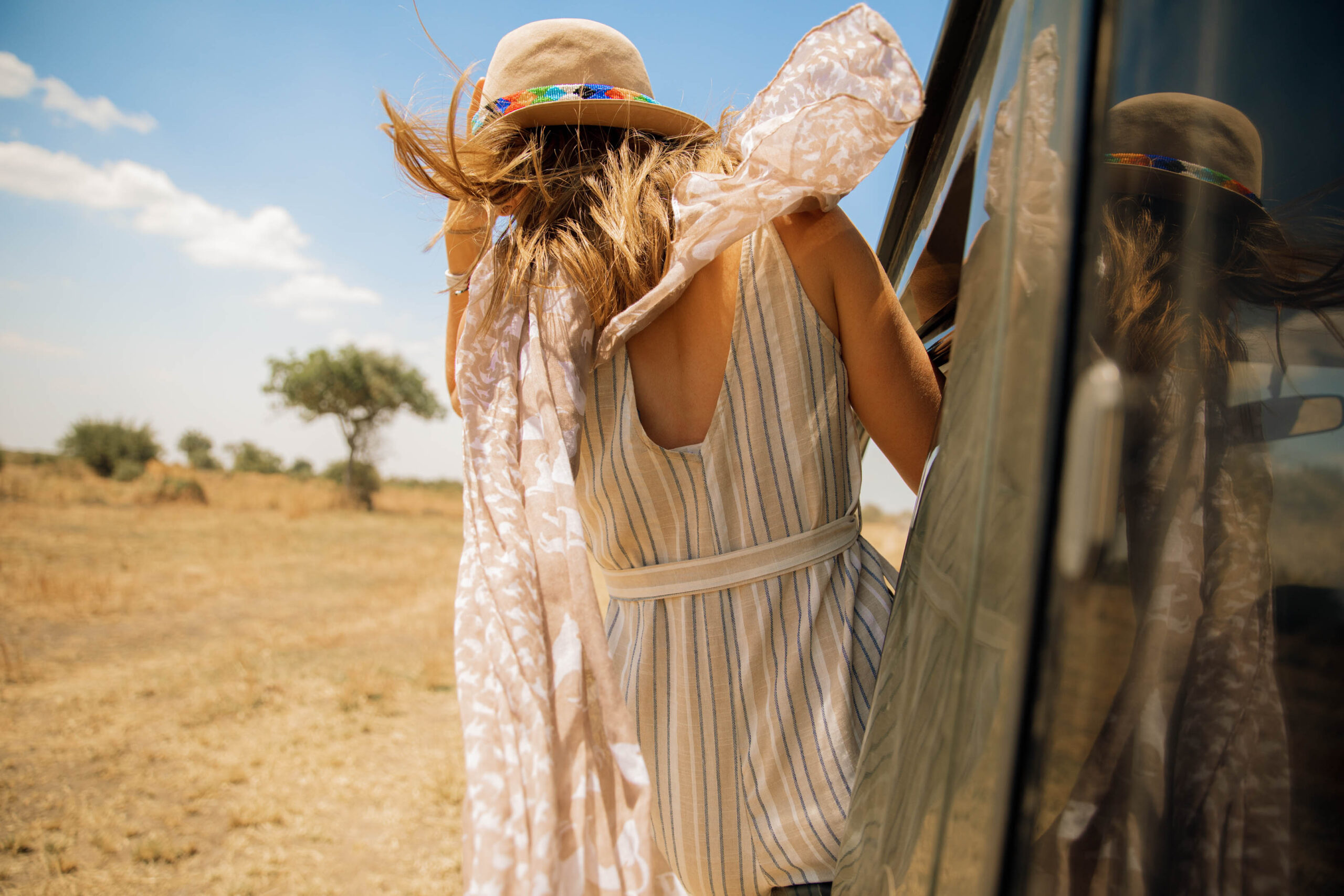
Pack a rain jacket, fleece, neutral light clothes, long trousers, shorts, t-shirt, long-sleeved shorts, underwear (a sports bra is very useful for the bumpy roads), flip flops/sandals and closed shoes, sunscreen, camera, binoculars, charger, medical kit, insect repellant, torch/flashlight, adaptor, and converter if needed, (British power socket) US dollars, battery bank, swimsuit, kikoi/sarong wrap.
Read this blog for a full list of what to pack for a safari in East Africa
Camera:
It is worth bringing a good camera with you if you can, also important is the lens. You will need a long lens, at least 400mm if you want to get good close-up shots, a wide angle is good for photographing the whole scene and a 70 – 200 is perfect for that midrange. Make sure you have extra batteries and SD cards I’m sure you will be taking a lot of shots.
My photos (below) are shot with a Nikon D500 with either the 16-33mm, 70-200, 100-400, or 100-600mm lenses plus some phone photos. Read this blog post for some wildlife photography tips.
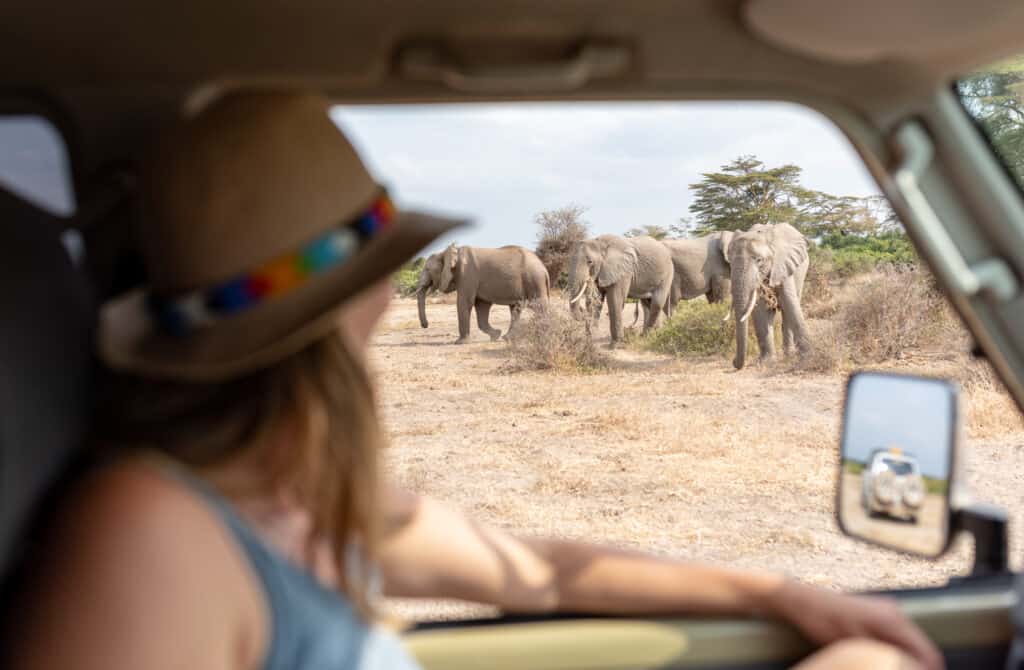
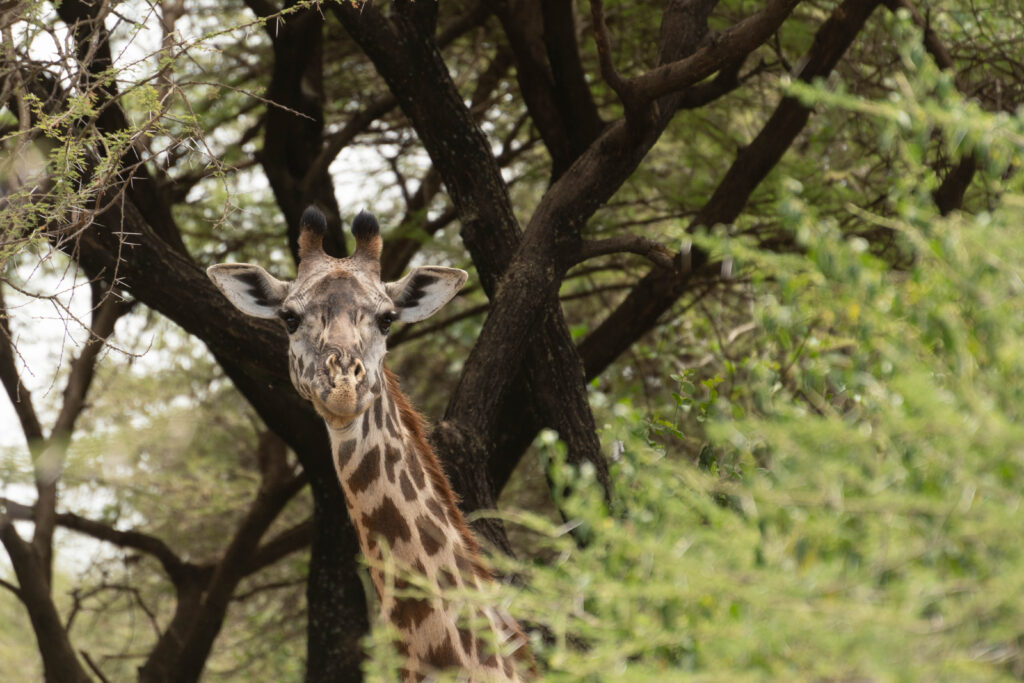
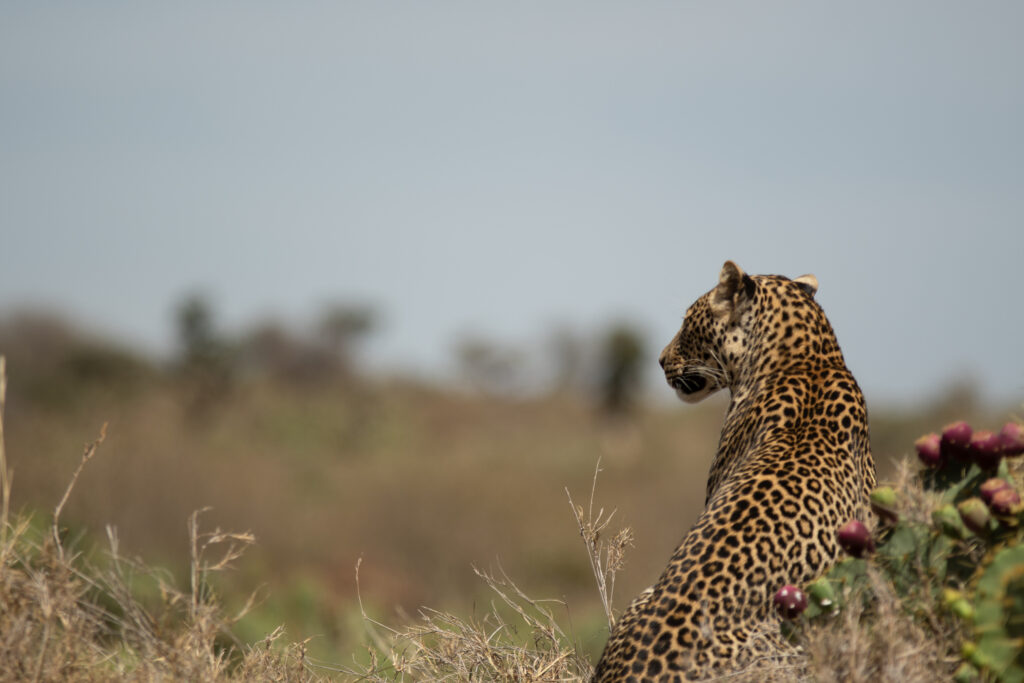
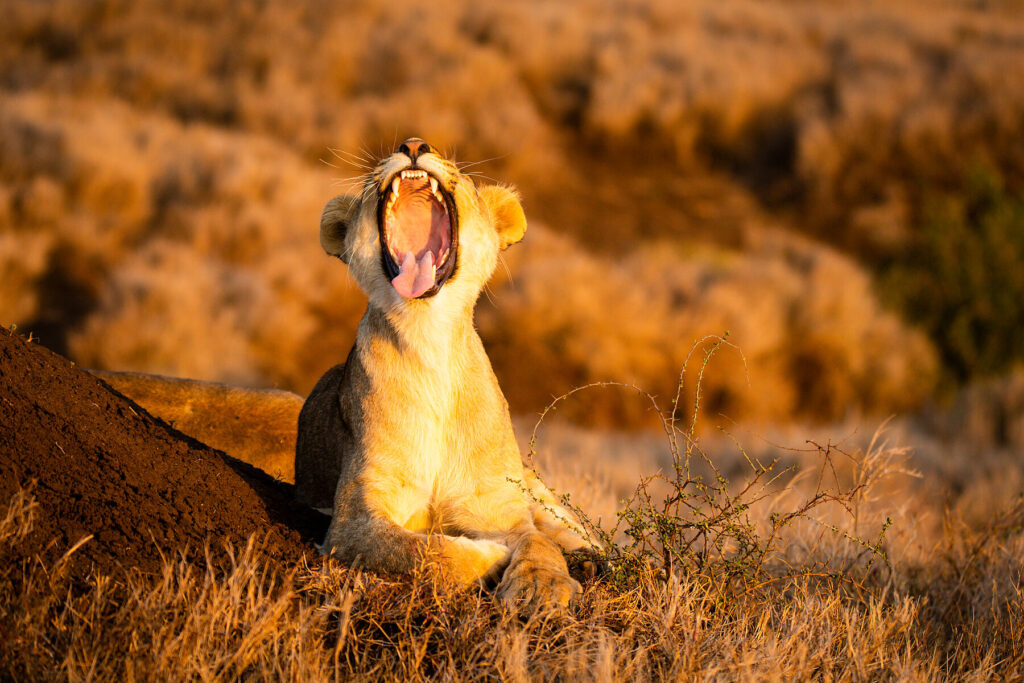
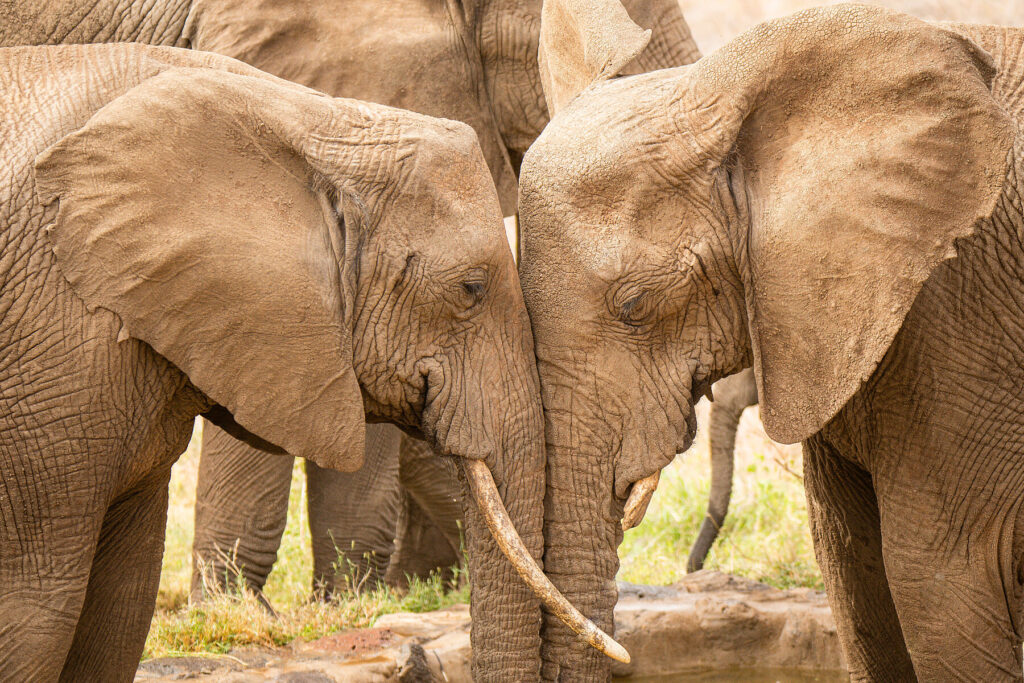
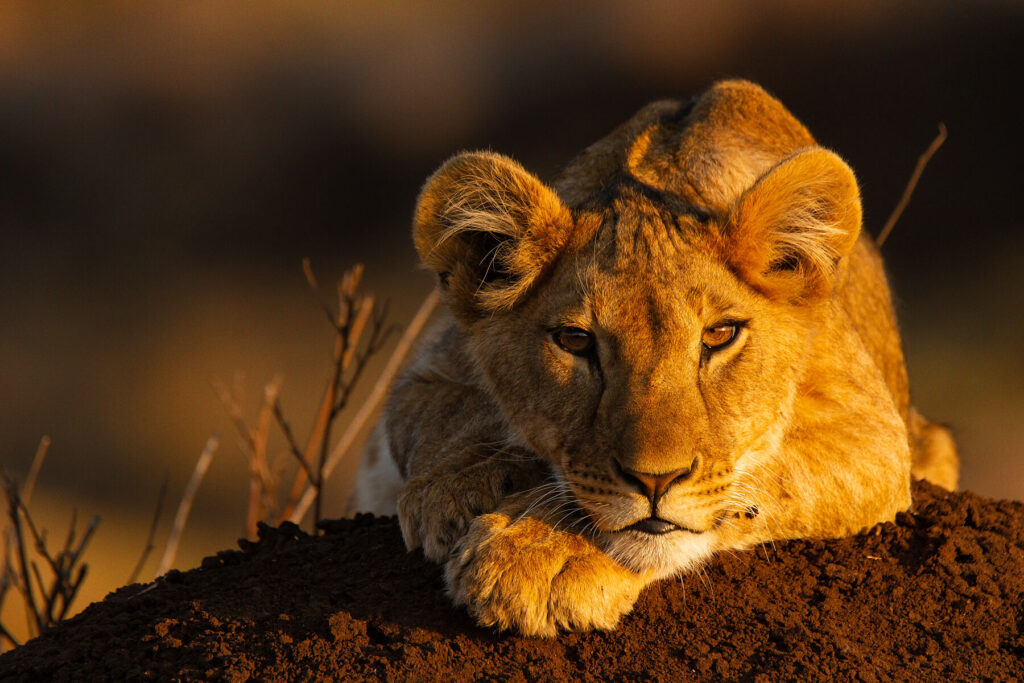
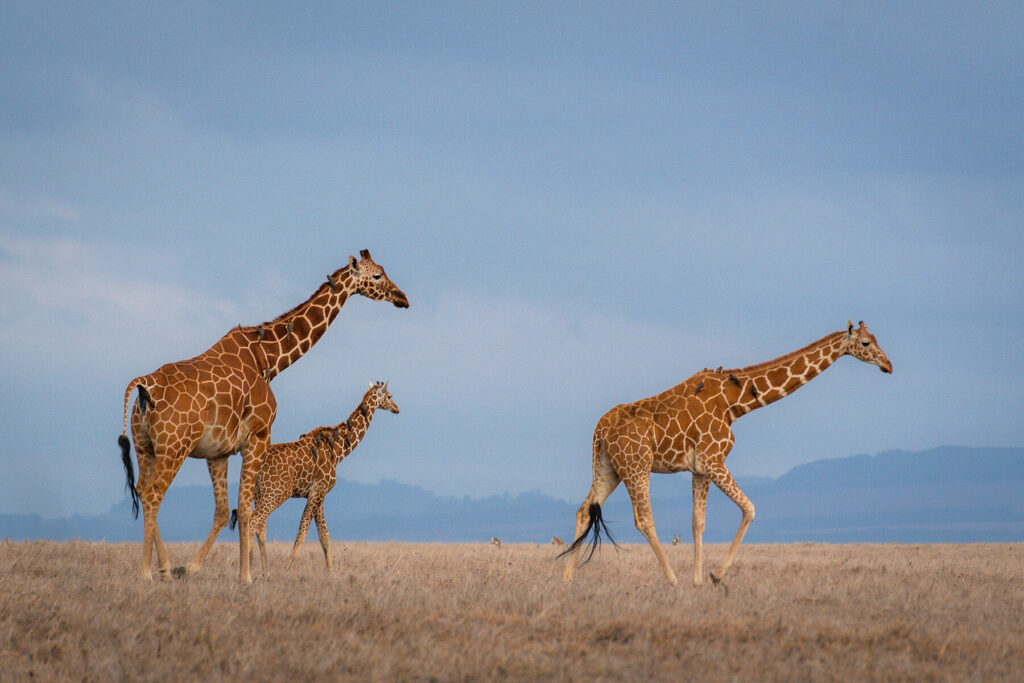
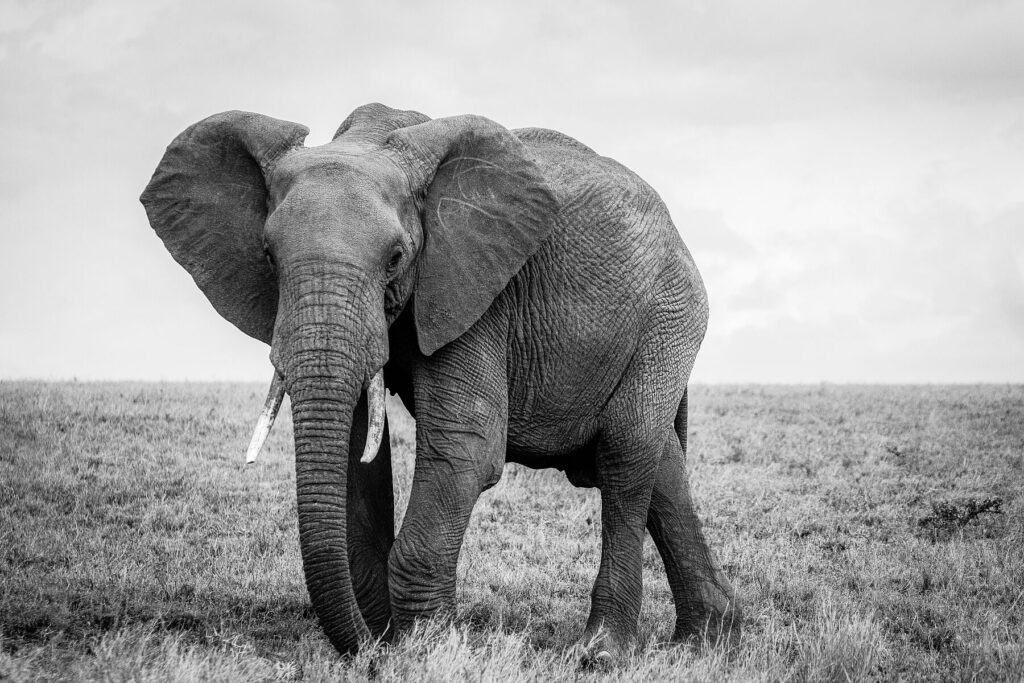
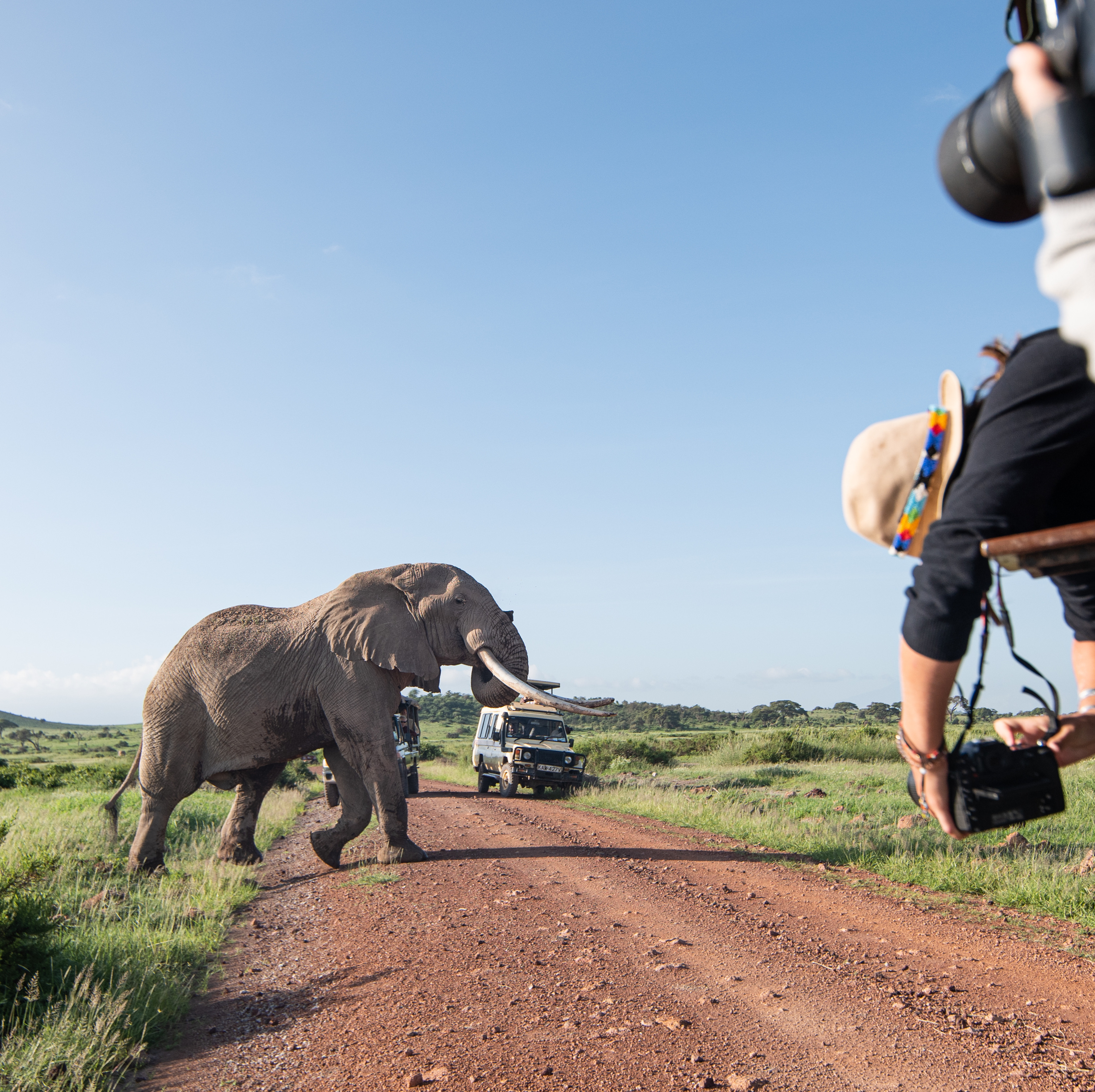
What will the food be like?
If you are on a budget camping safari then a chef will accompany you on your trip, he will prepare the meals at the campsite while you are on safari. You will eat your meals at the campsite or you will take a packed meal with you on your travels. The food will usually be traditional ‘Western food’ including sausage and egg for breakfast, pasta, chips, chicken, etc for lunch and dinner.
If you are staying at lodges then your meals will be provided by the lodge, meals vary according to the standard of the lodge you are staying at but again they will be traditional Western-style meals including full English breakfasts, soups, pastas, steak etc for lunch and dinner. Sometimes the lodge will have a ‘traditional’ night where they will cook local ‘traditional’ meals for you to sample.
Traditional local meals consist of ‘Nyama Choma’ BBQ meat, Kachumbari salad, which is a fresh tomato and onion salad, and Ugali/Nseema which is made from Maize corn.
I am a vegetarian/vegan/have food allergies, will they be able to cater to me?
Yes, when planning your safari be sure to tell the agent/company about your dietary requirements and they can select the lodges accordingly, some are better at accommodating dietary requirements than others. Once you have told the agent they will inform the lodge of your dietary requirements before you get there so they will have time to prepare and order supplies accordingly.
When you get to your lodge you will generally have a briefing where the manager should discuss with you your dietary requirements. If they don’t mention it, it is a good idea to remind them about it now.
Are there any medical precautions to take?
It is a good idea to speak to your healthcare provider about what vaccinations are required for your trip to East Africa. While there are no longer any Covid vaccination requirements for East Africa, there are other recommended vaccinations that you might require. You can read more about the recommended vaccinations for travel to East Africa here.
Some companies also require that you have medical insurance. In Kenya and Tanzania there is ‘flying doctor’ cover. Getting this will ensure that where ever you are you will get airlifted to the hospital if required. Remember some of the safari locations are remote and take a long time to get to along the bumpy roads so having medical cover is definitely not a bad idea.
How much money will I need?
If you have booked an ‘all-inclusive safari’ then that means that your accommodation, food, park fees, game drives, etc are all included. Therefore in theory you won’t need much money, however, there are things that are excluded including drinks, tips, sometimes laundry, personal shopping etc.
If you are on a self-drive safari then you will need money for food, petrol, park fees, etc so you will need considerably more cash. For more information about self-drive safari in East Africa, you can read this blog post, Everything you need to know for a self-drive safari.
In Kenya, the currency is Kenyan Shilling, in Tanzania it’s Tanzanian Shilling and in Uganda it’s Ugandan Shilling. In most touristy areas USD will be accepted, however, the notes need to be in good condition and dated after 2009. It’s also a good idea to have some local shilling for shopping for souvenirs, cold sodas, etc.
You will be able to exchange some currency at the airport or use your bank card to withdraw local currency from the ATM (remember to inform your bank of your travel plans so your card does not get blocked).
However, a lot of places do accept USD just make sure there are no marks on the note and the date is later than 2009 ) the banks here are very picky about what notes they accept.
If you are traveling to Zanzibar or Lamu there will be ATM’s in the main town Stone Town and Lamu Town only. Generally, once you get to the beach there aren’t ATM’s so make sure to get enough money out while in the town.
Remember, it’s a good idea to pay for bed and breakfast while at the beach to give you the opportunity to wander around and try out a number of resturants, but it does mean you will be spending more money.
There are also lots of activities you can do while at the beach which again will require more money.
How much should I tip?
With regard to tips a general recommendation is around $15-20 per day for the guide $5-10 per driver/transfer, and around $10 a day for general staff at the lodge to share. However, what you tip is completely up to you.
Generally, it is better to tip all at once at the end of the trip rather than every day.
Will there be wifi?
Most of the lodges will have wifi, not always in all of the bedrooms but usually in the ‘main area’. You will not have access to wifi while out on game drives or when driving between lodges. If you need to ensure that you have access to the internet all the time then it might be a good idea to buy a local sim card and load it with data. You can buy sim cards at the airport when you first arrive.
What is the difference between a lodge, a tented camp, and camping?
A lodge is built out of brick and mortar. With a tented camp the bedrooms at least, if not the whole lodge, are built out of canvas tents. Don’t worry these are not your usual kind of tent. Standards vary according to the price but they basically all have a real bed and an ensuite bathroom. Really they are as luxurious if not more luxurious than a ‘real room’.
A lot of people prefer staying in a tented camp as it gives you that ‘closer to nature, out of Africa vibe’ without compromising on comfort.
A camping safari, however, is something else entirely. On a camping safari, you will take the tent around with you and put it up at each campsite. You will sleep on a mattress in a sleeping bag and use the shared toilet shower facilities, which in my experience usually only have cold water. Obviously, these safaris are much cheaper but not as comfortable. They are definitely wild though and definitely close to nature.
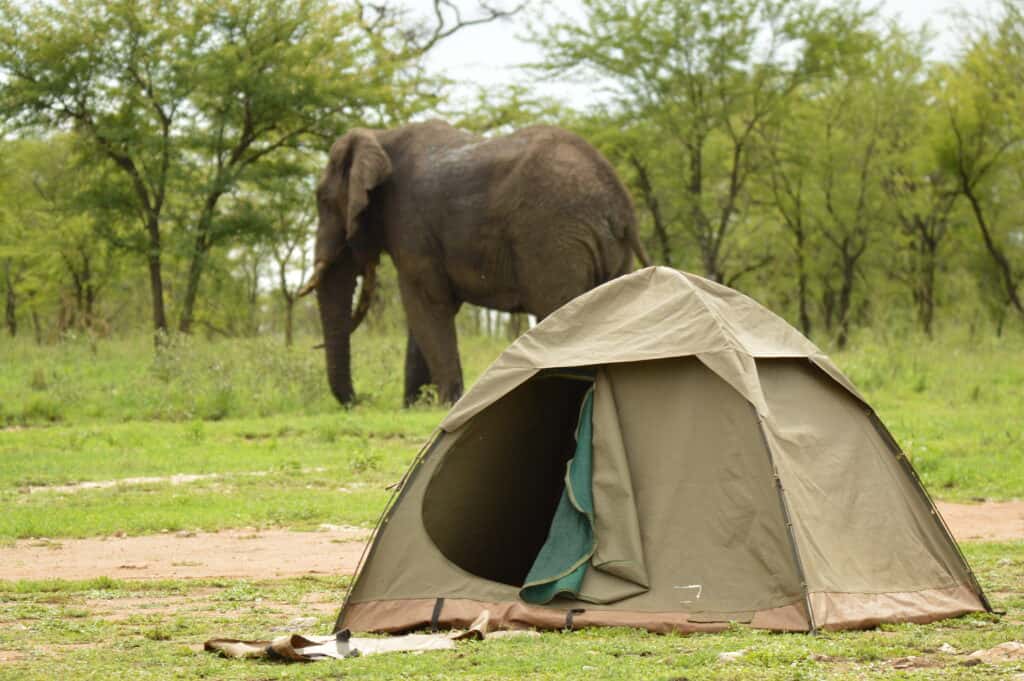
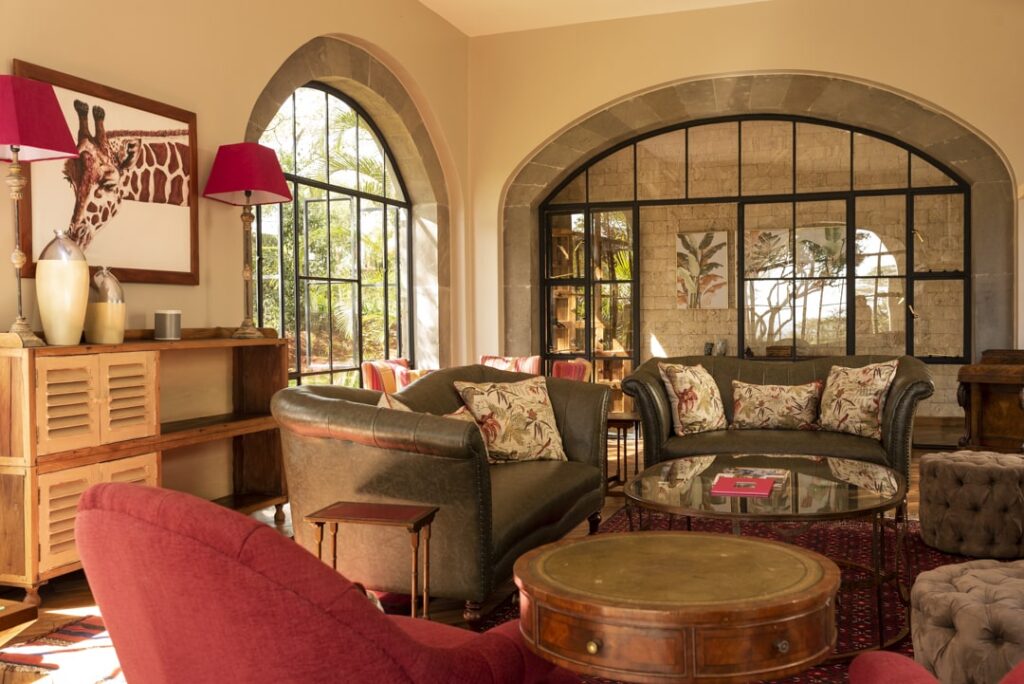
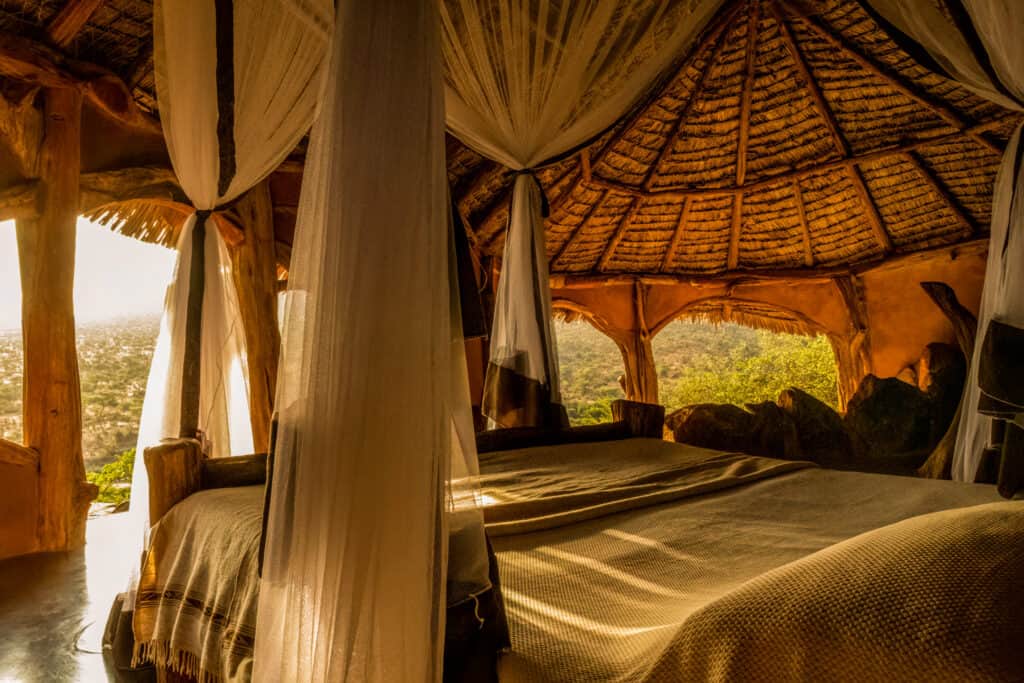
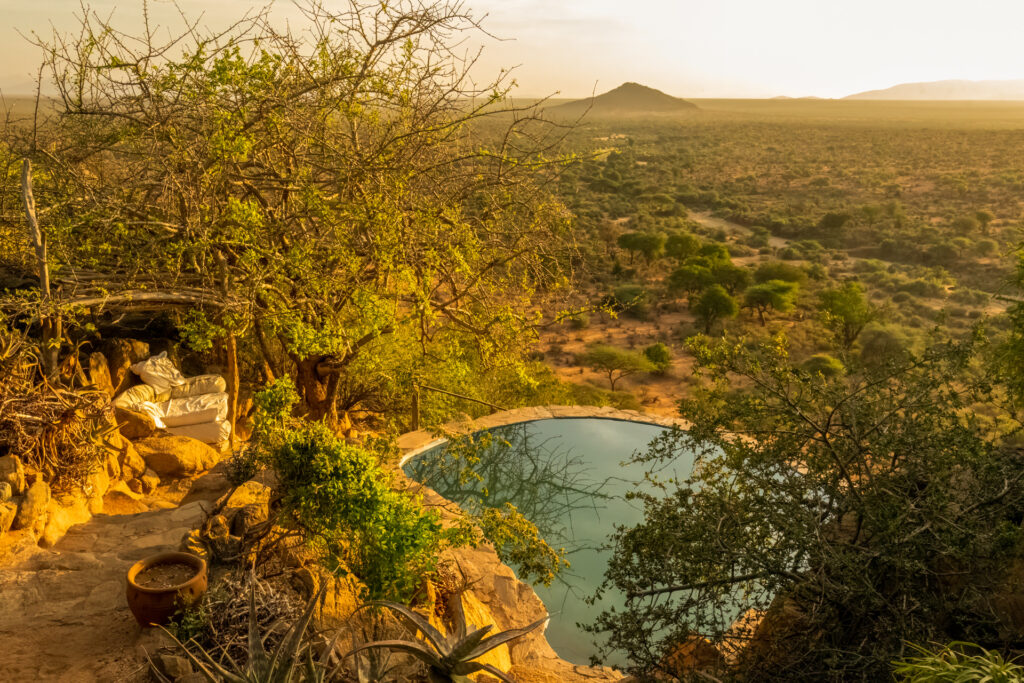
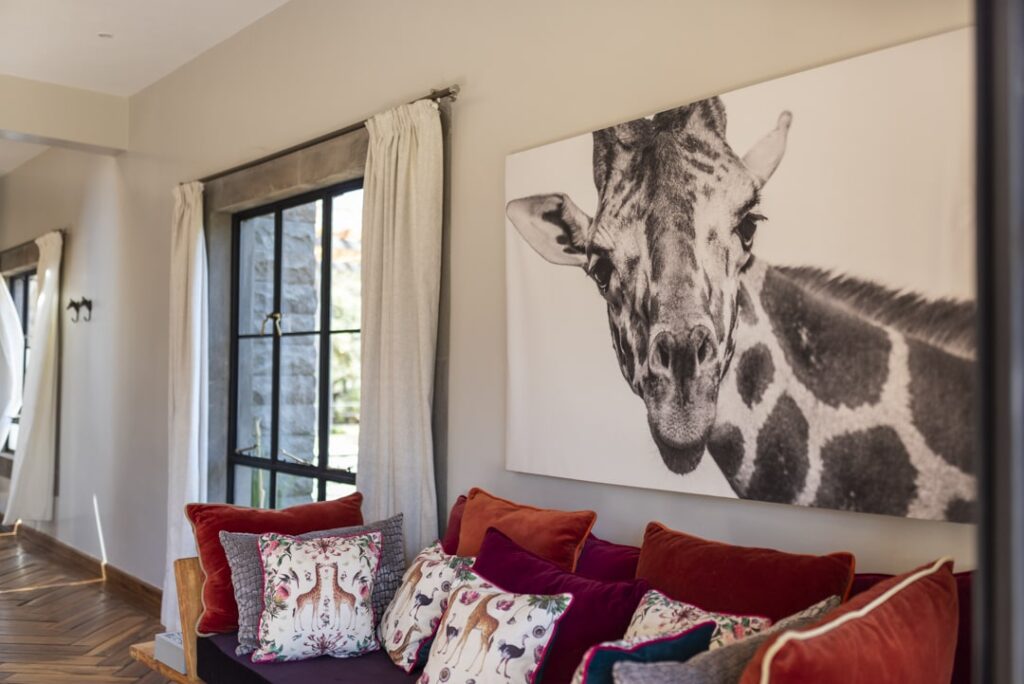
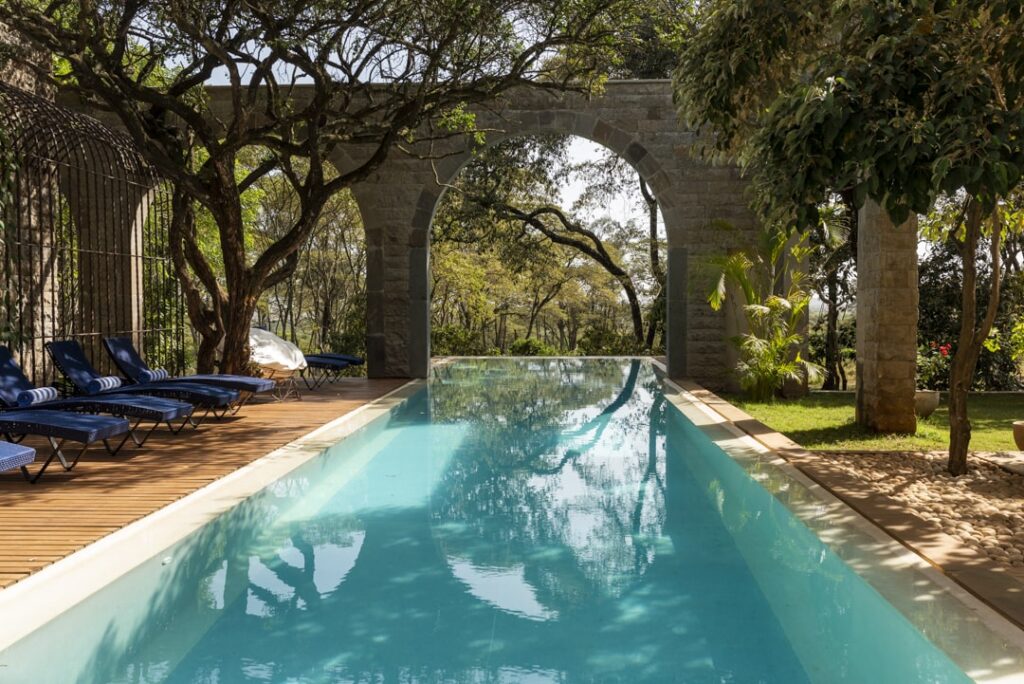
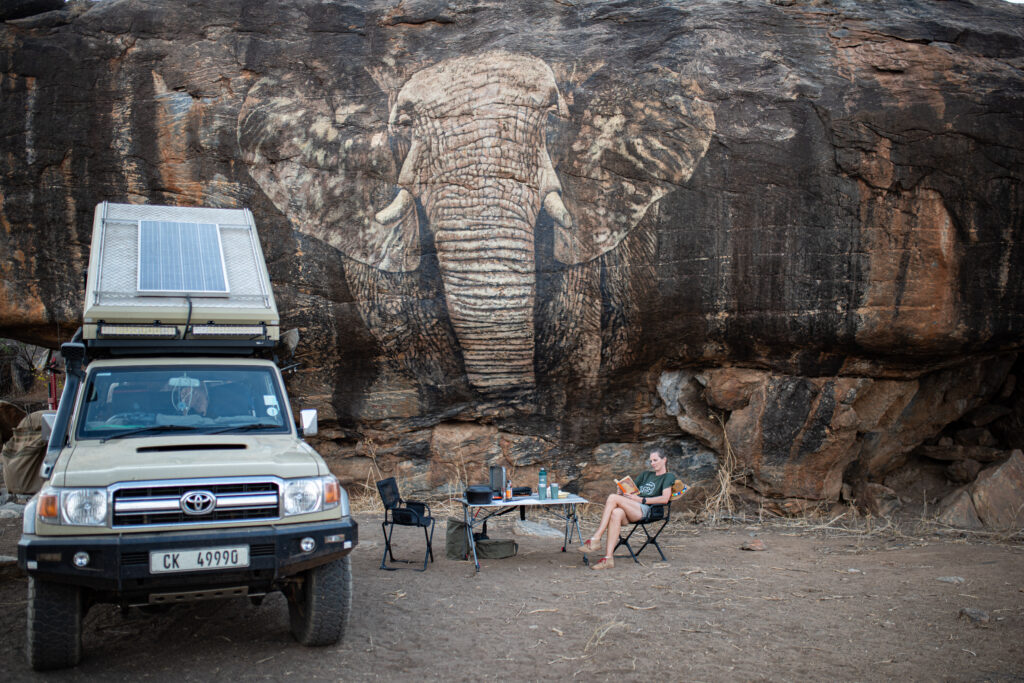
Do I need to know any of the local languages?
Greetings are a very important part of the culture in East Africa so if you can learn a few key greetings then it would go a long way to helping the locals feel like you have made an effort. I know a little Swahili, which is the main language of both Tanzania and Kenya, but unfortunately, I can’t help you with Uganda.
- Harabri = ‘How are you’ (technically it means ‘what’s the news’) if in doubt use this, it’s polite enough to use in all situations
- Mzuri = ‘Good’, the reply to Habari
- Mambo = ‘what’s up,’ slang greeting to friends or people younger than you (informal)
- Poa/safi = ‘Good/fine’, reply to Mambo
- Shikamol = ‘I respect you’, this is a greeting for elders or people in an authority position
- Marahaba = ‘I accept your respect’, reply to Shikamol
- Asante = Thank you
What do I need to know about the culture?
The culture in East Africa in general is more traditional than Western culture, more so in some places than others.
Coastal areas tend to be more Muslim so be sure to dress modestly (cover your cleavage and knees). In the tourist areas like on the beach you can be in a bikini, no problem, but as soon as you step into the towns or villages around the beach then dress accordingly. It’s a good idea to carry. sarong or buy a local kikoi to cover up with when needed. In particular in Stone Town in Zanzibar and Mombassa and Lamu in Kenya.
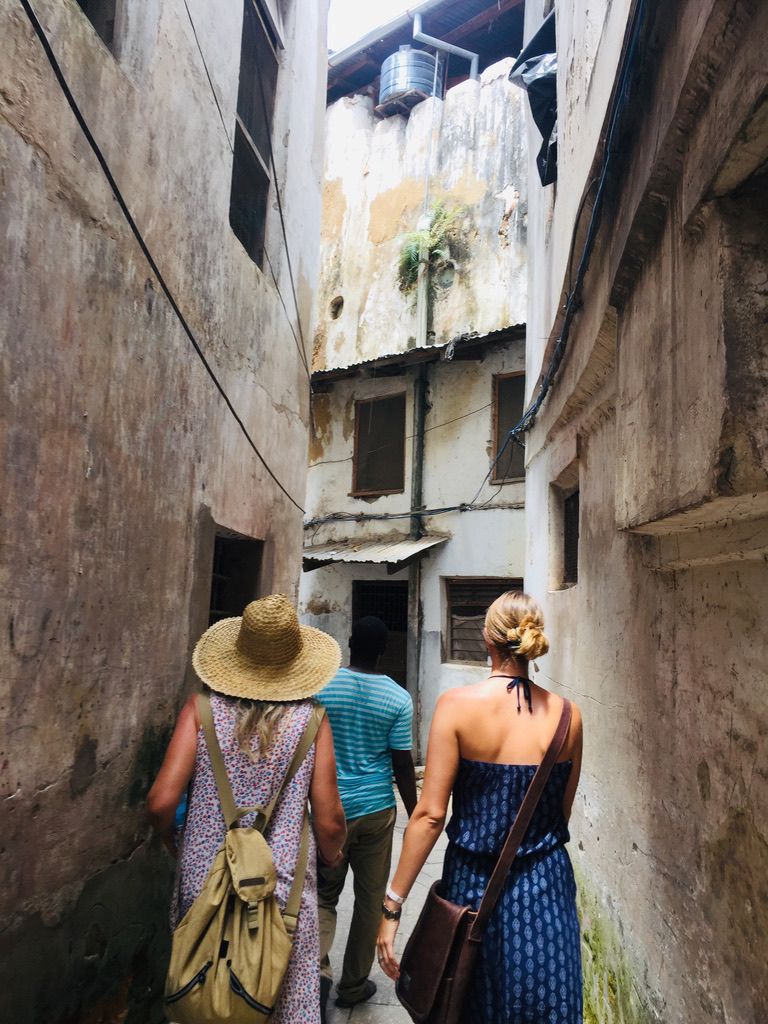
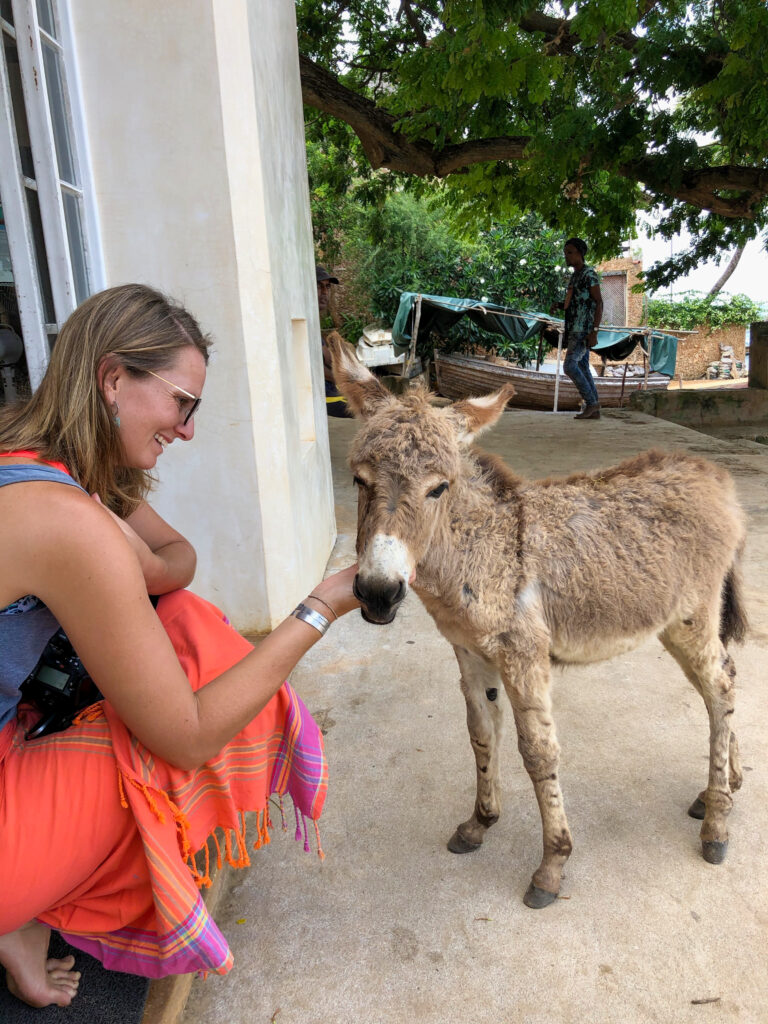
In big towns and cities like Kampala and Nairobi, it’s a little different, people do dress more liberally there.
In general when you are visiting rural villages then it’s best to cover up, don’t wander around in bum shorts and crop tops.
As mentioned, greetings are important, ask how someone is first before asking your question.
People on the whole are very friendly and are always willing to assist if you are lost or confused.
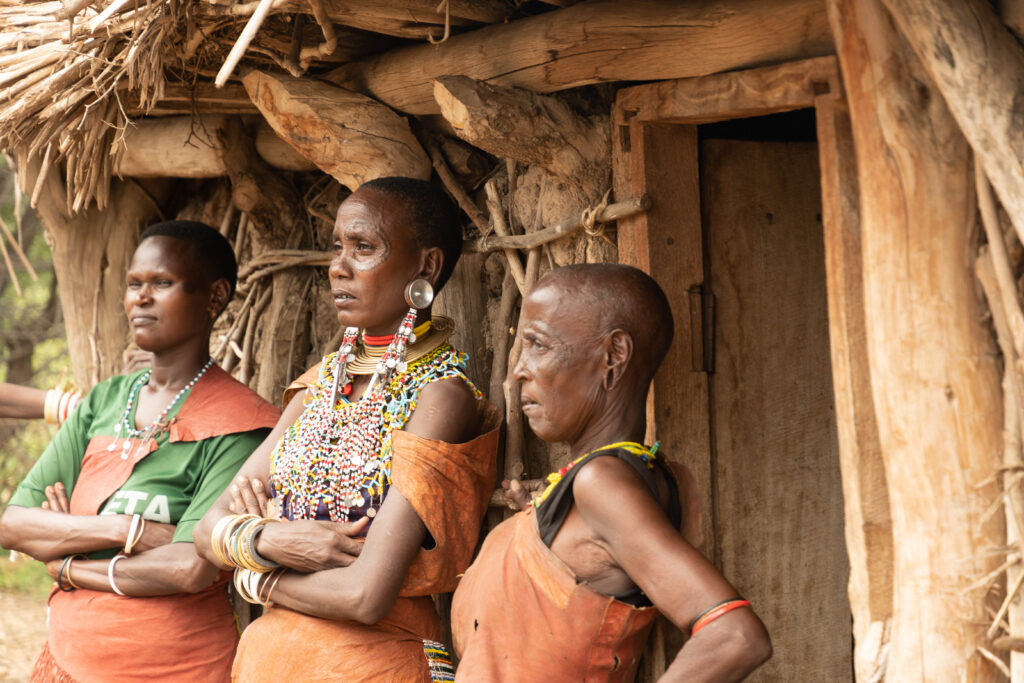
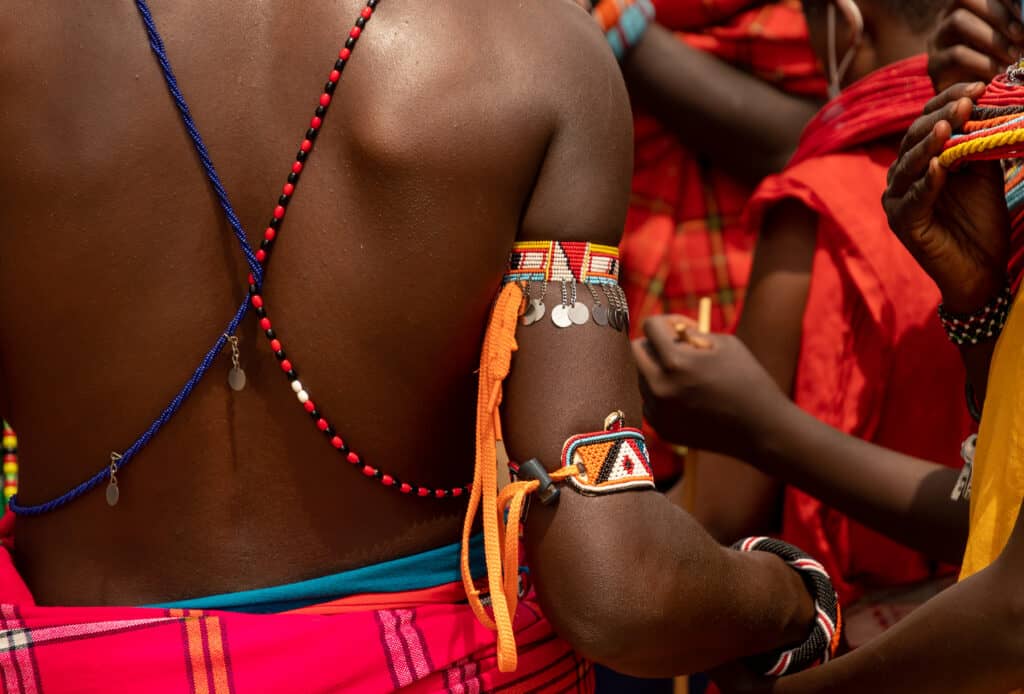
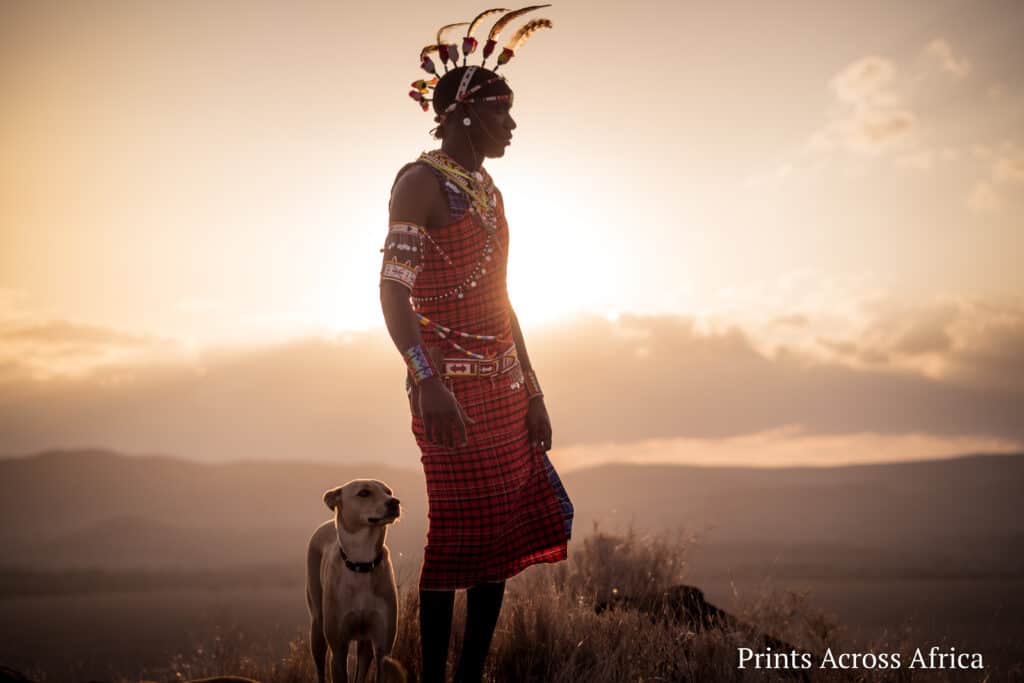
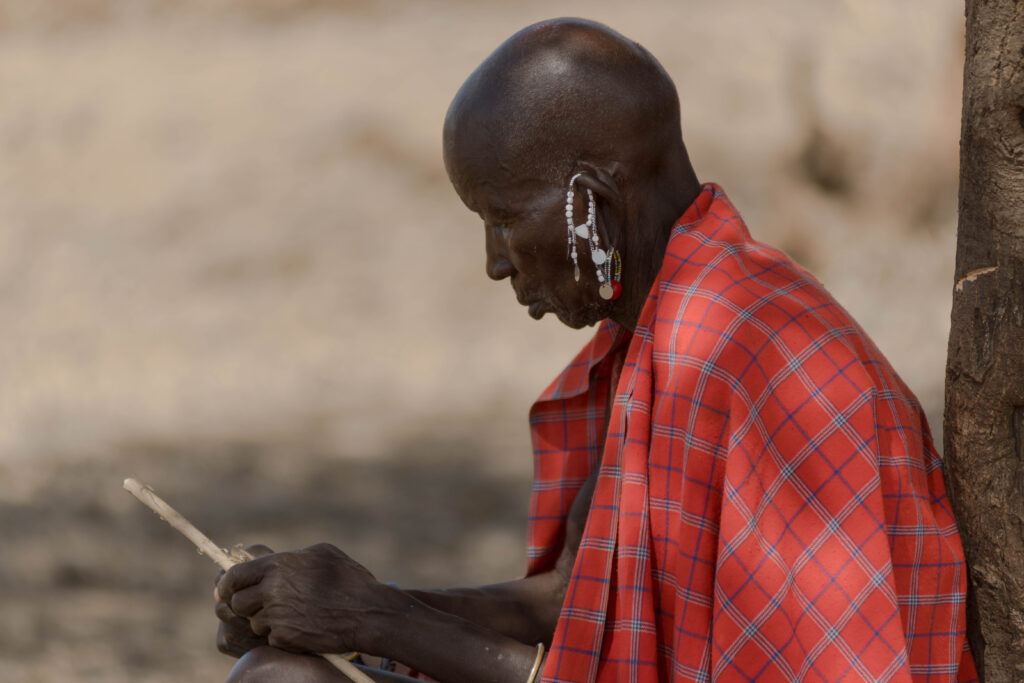
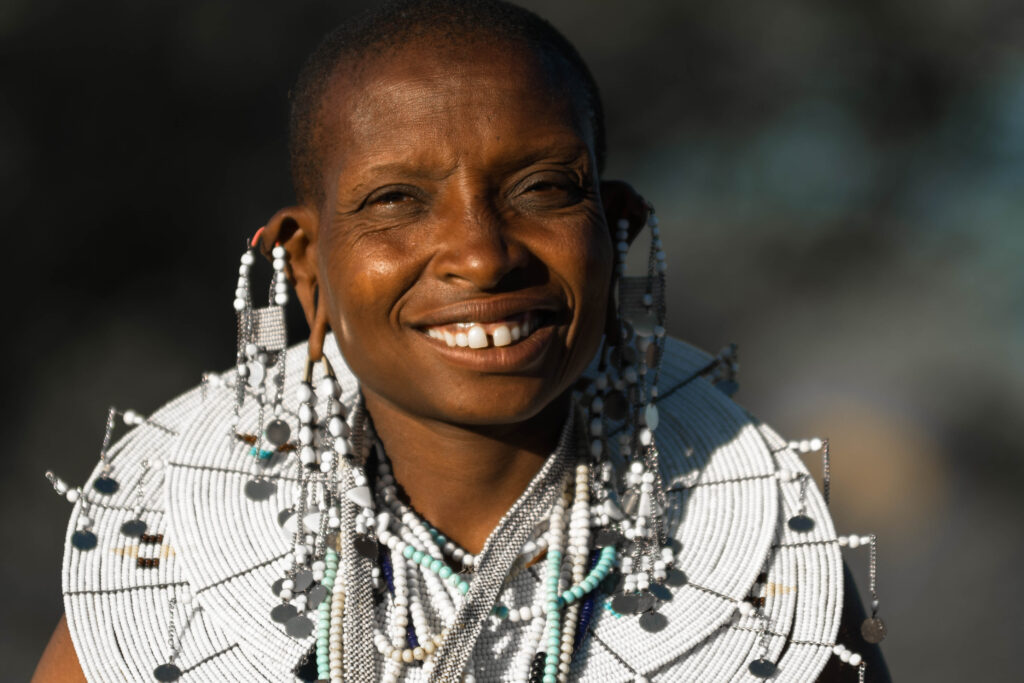

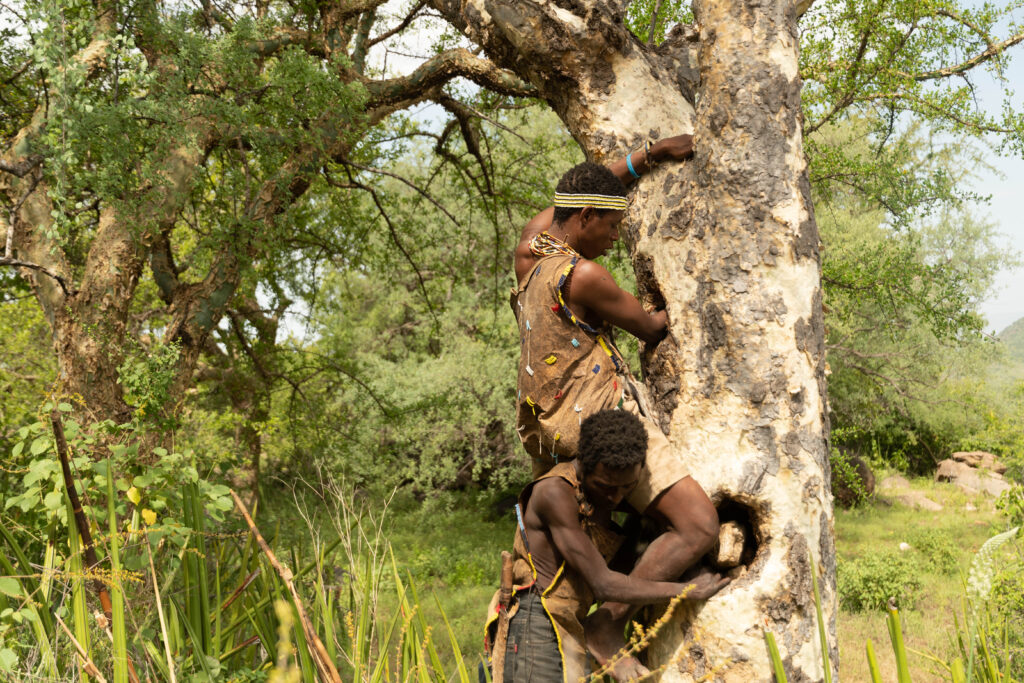
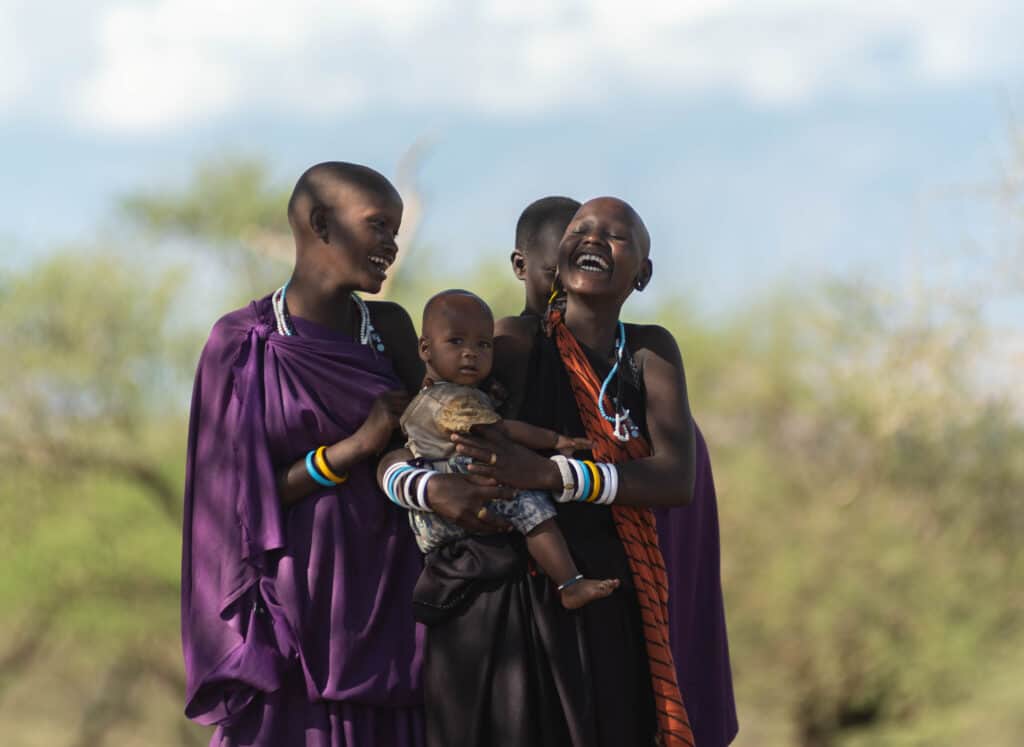
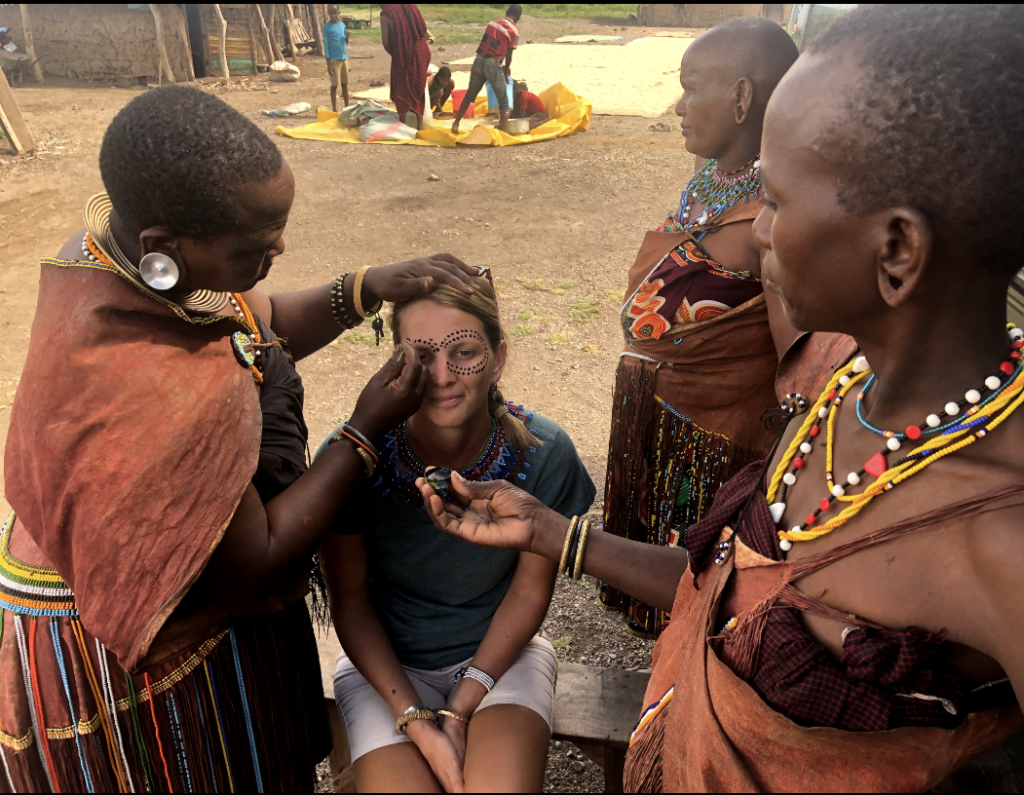
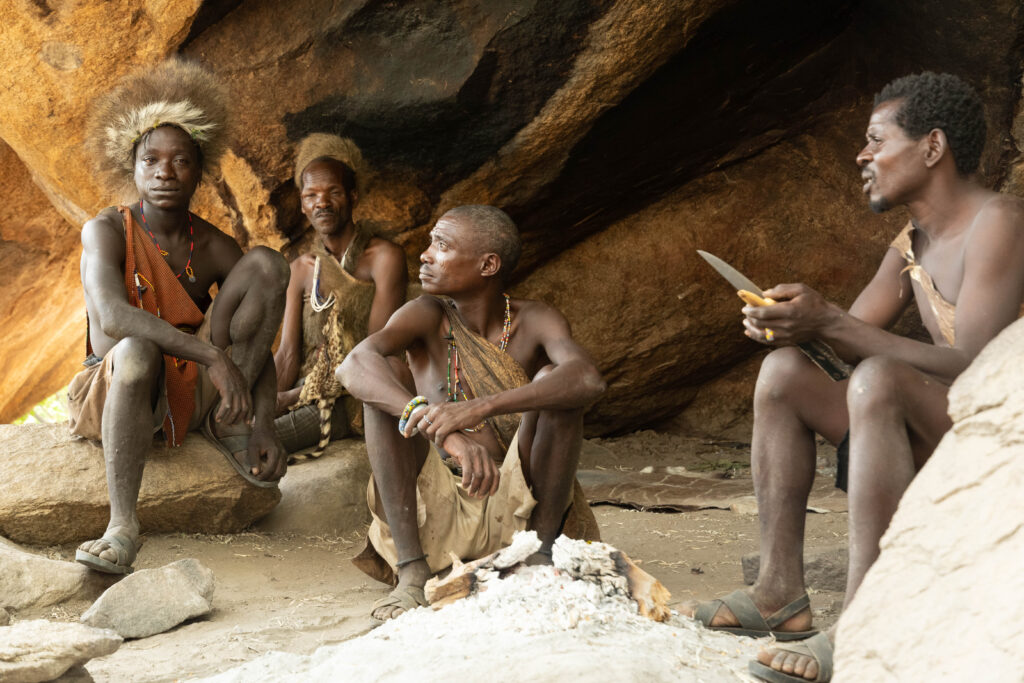
What are the toilet facilities like while on safari?
The lodges and tented camps will have ‘western style toilets’ the campsites will have both ‘western style’ and long drops. While you are on an actual safari i.e. a game drive then most of the time there is no toilet. Sometimes you will stop at a designated picnic spot which usually has a loo (although not usually toilet paper so carry some with you).
But if you are just on a game drive and need a wee then you will ask the guide to find somewhere suitable for you to go, usually behind a bush. Don’t worry the guide will check the area first to make sure there are no dangerous animals then you are good to go. Please don’t throw toilet paper in the bush, bring it back to the car and the guide should have somewhere for you to dispose of it.
Any other questions?
So there you have it, a big long list of questions but I am sure there are still some I have missed. If you do have any further questions feel free to comment below or follow me on Instagram where you can message me to ask me anything safari related.
To have all of this information in a handy download just click the link below!

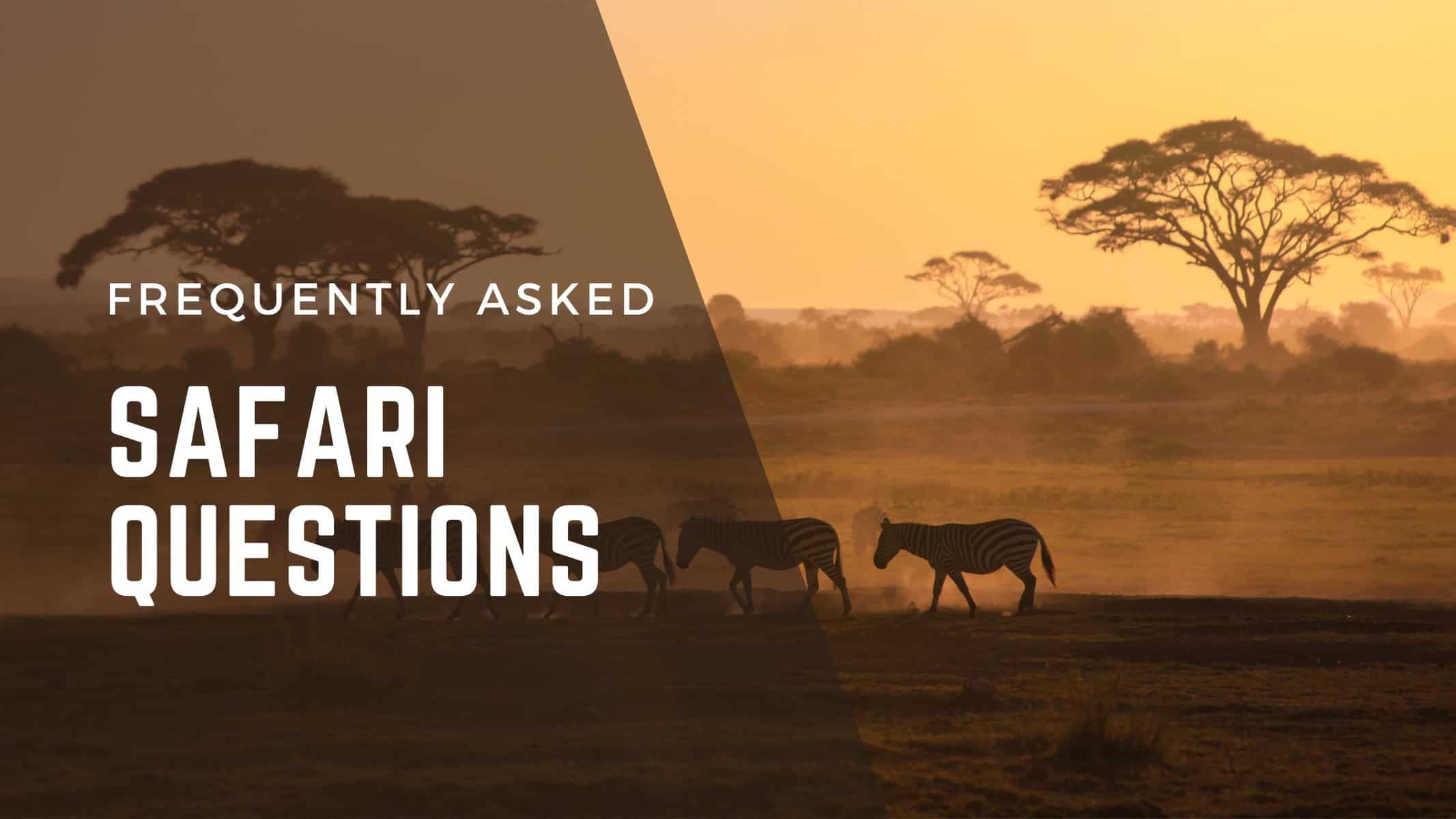


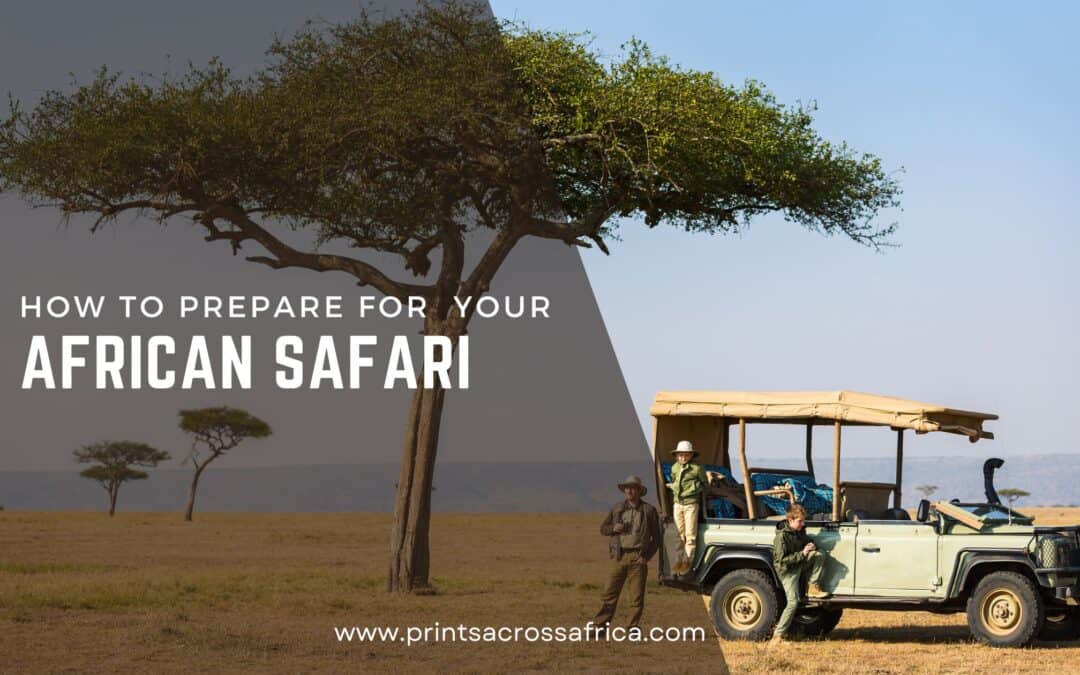
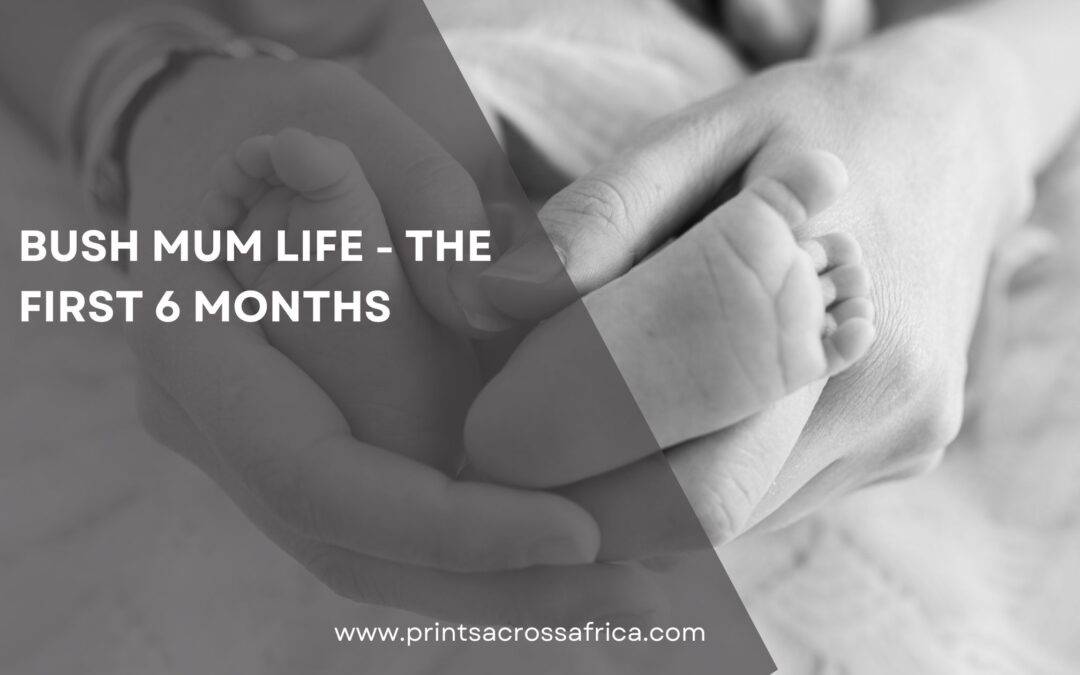
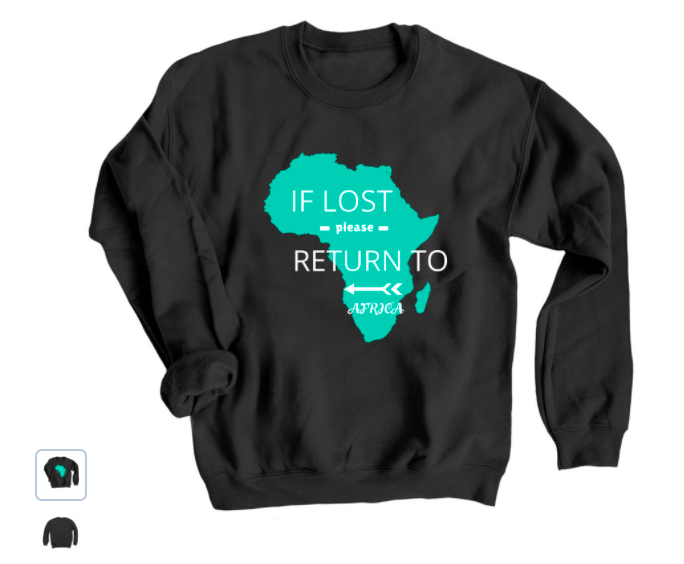
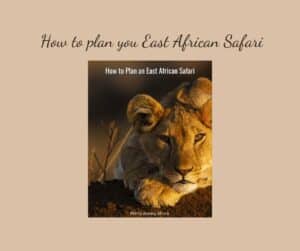
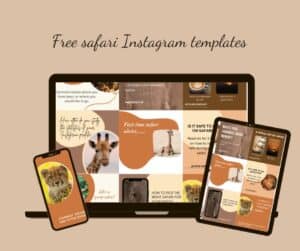
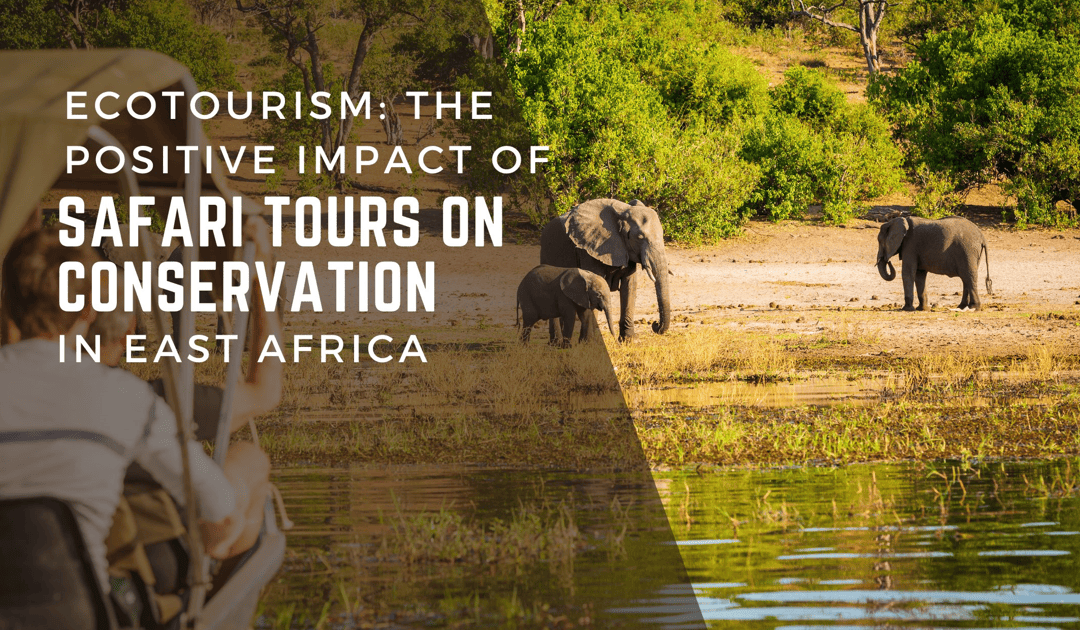
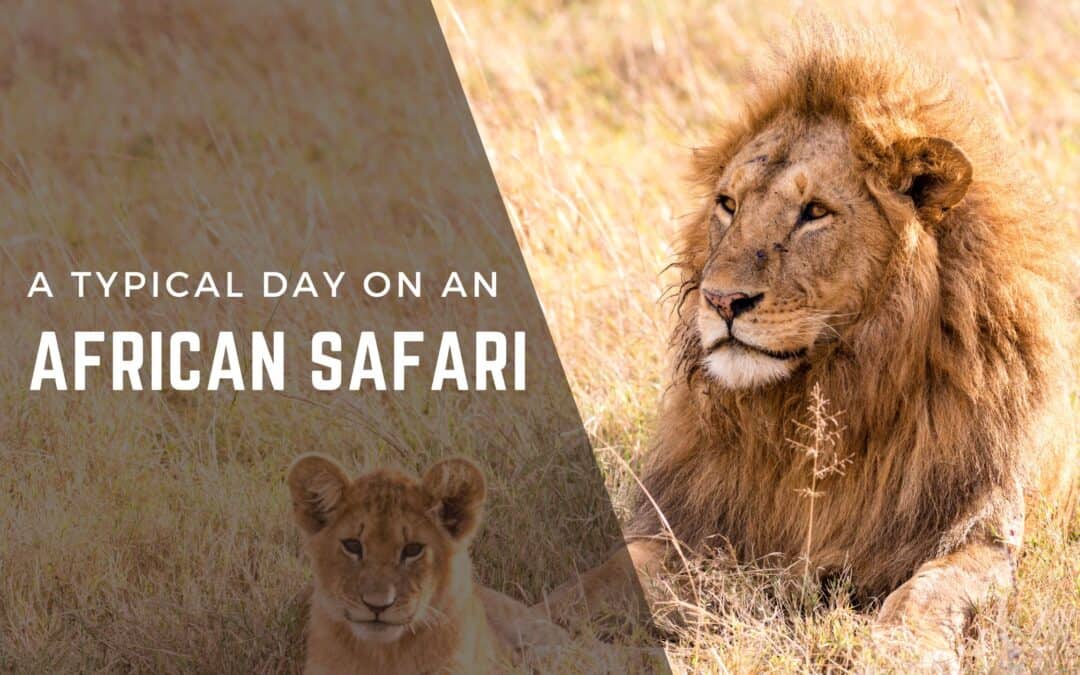

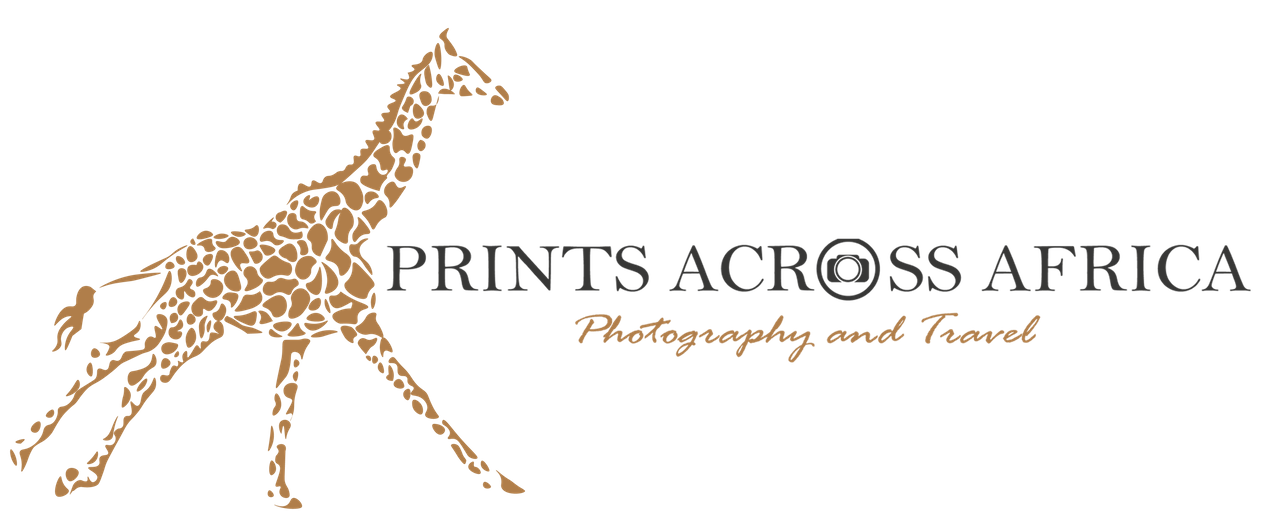
0 Comments